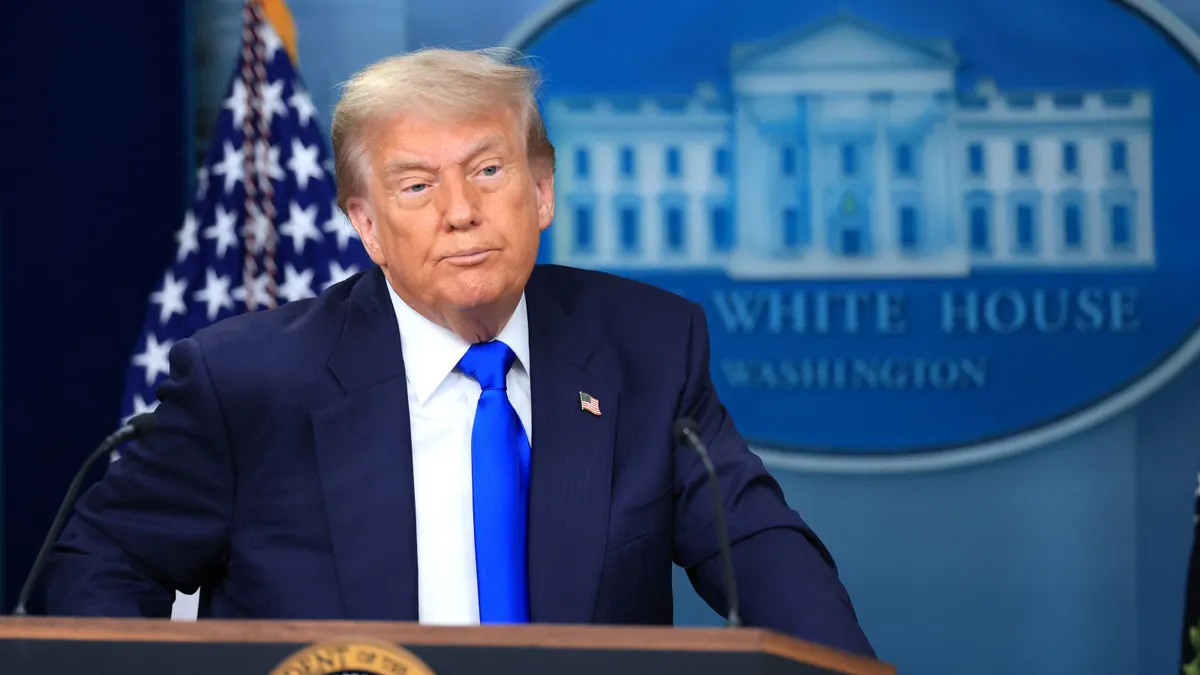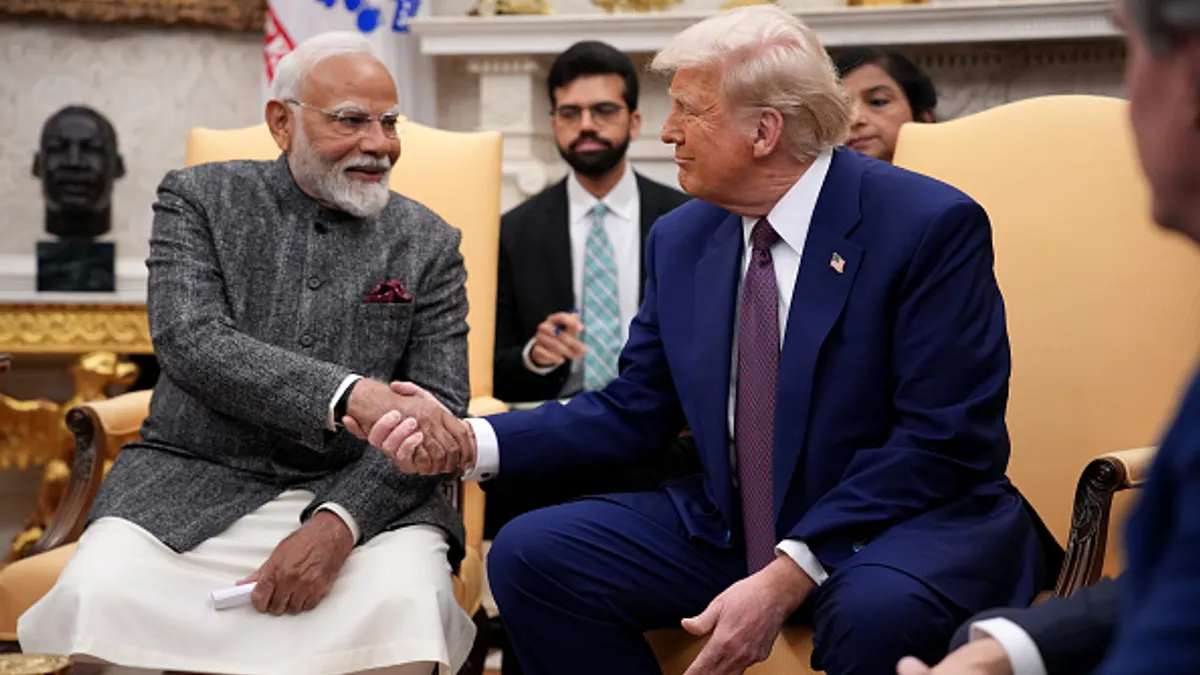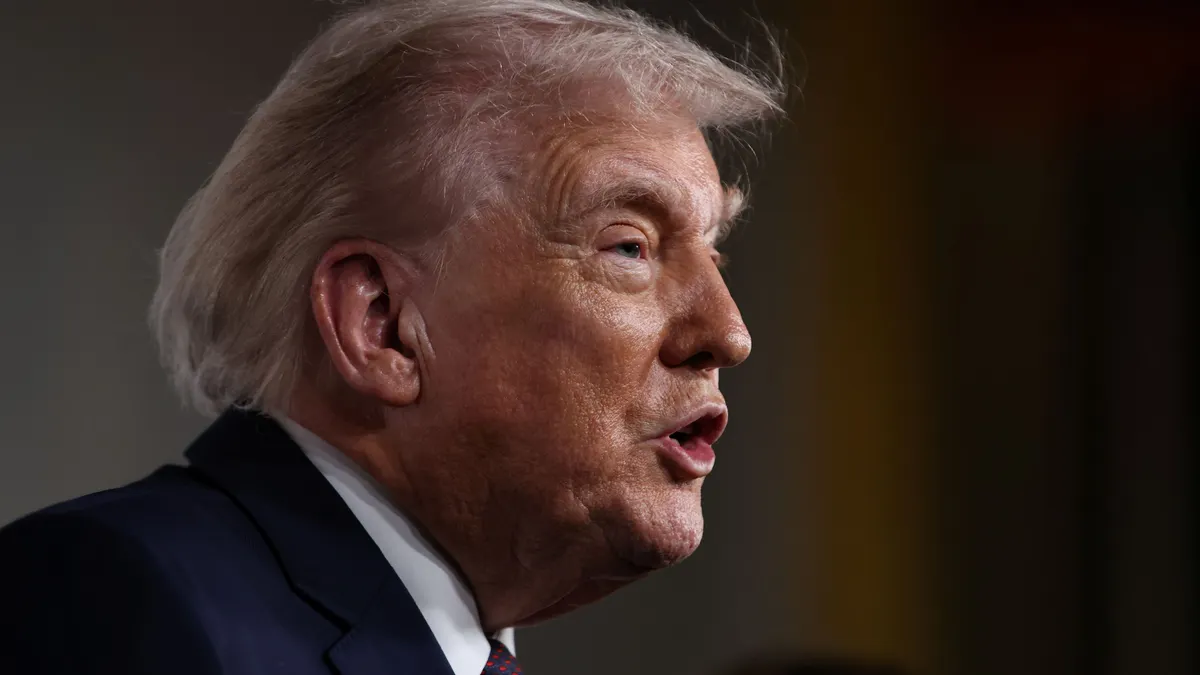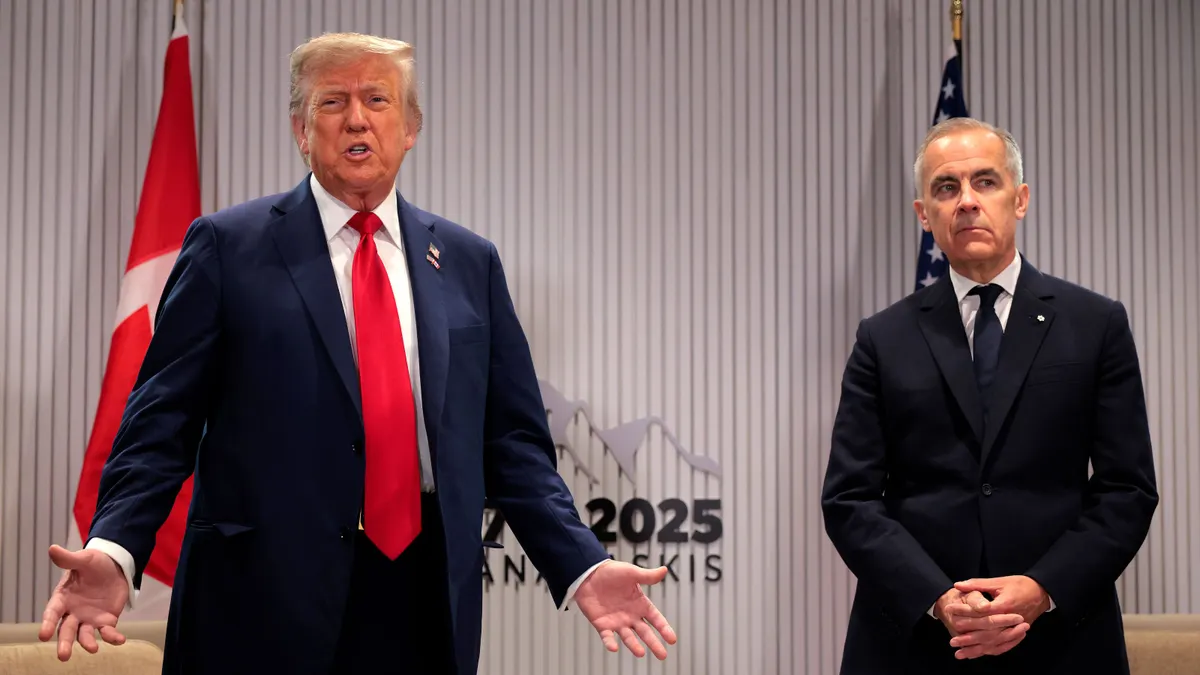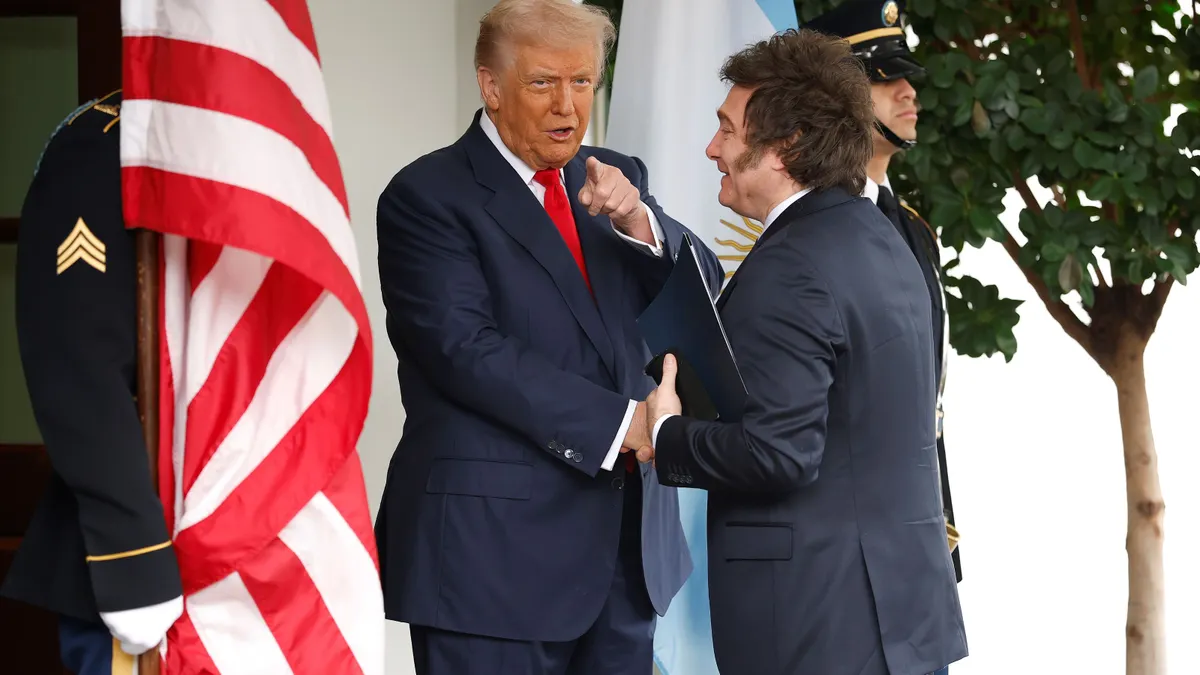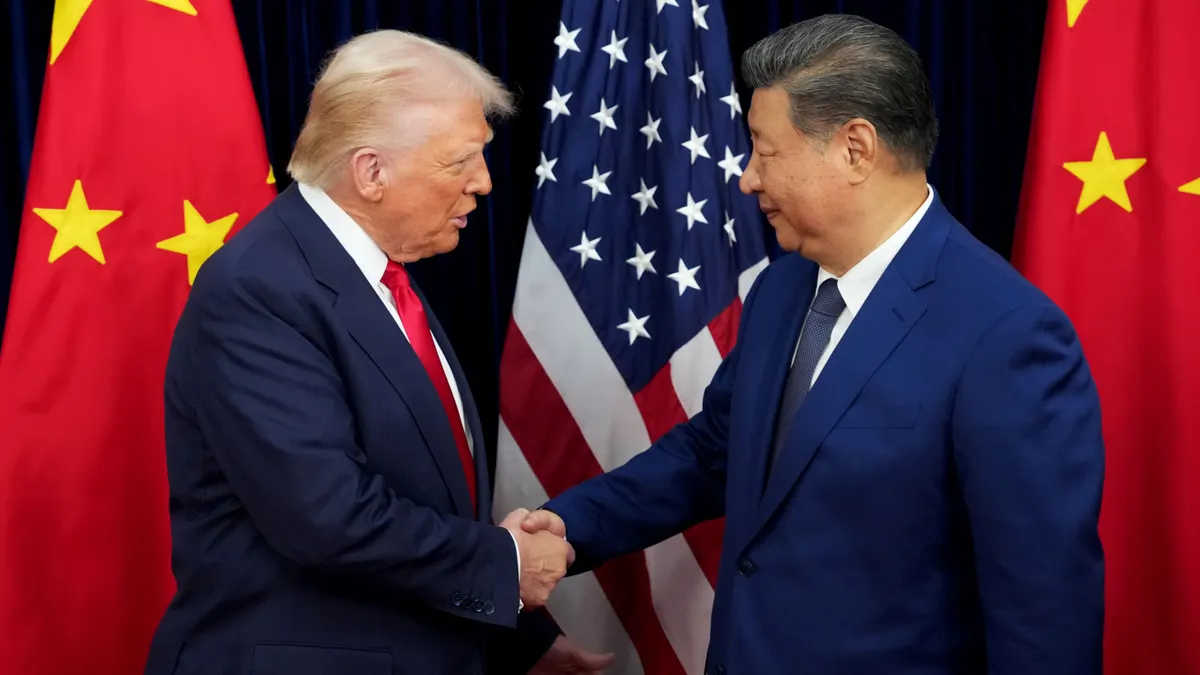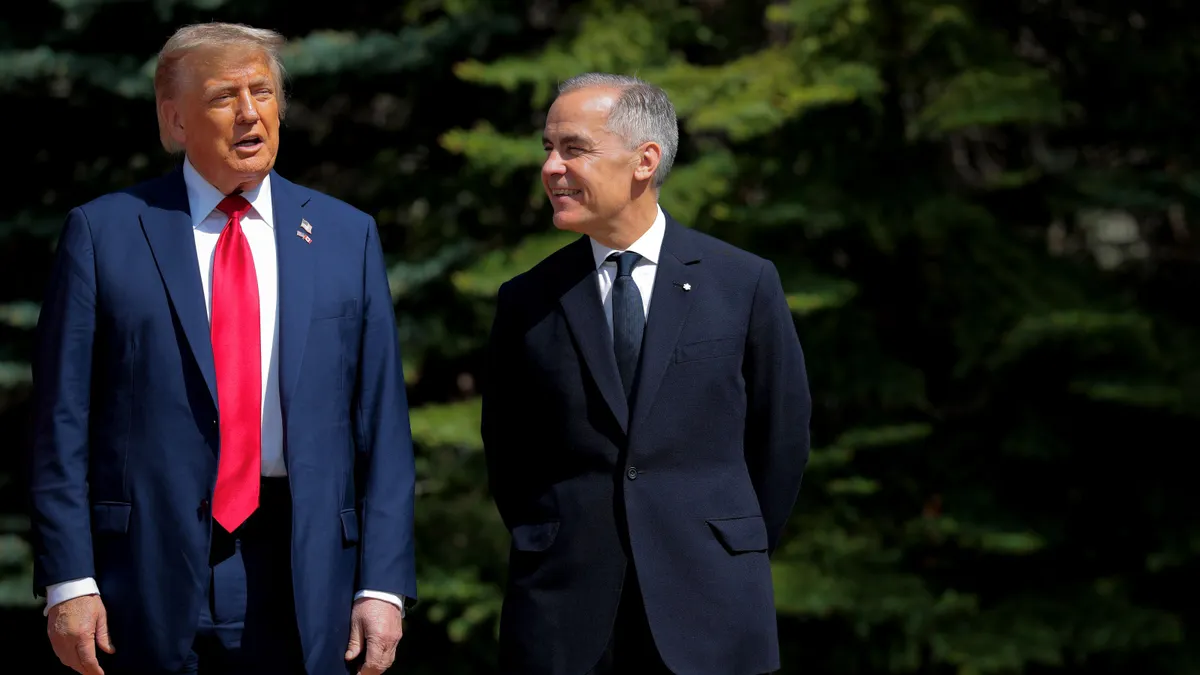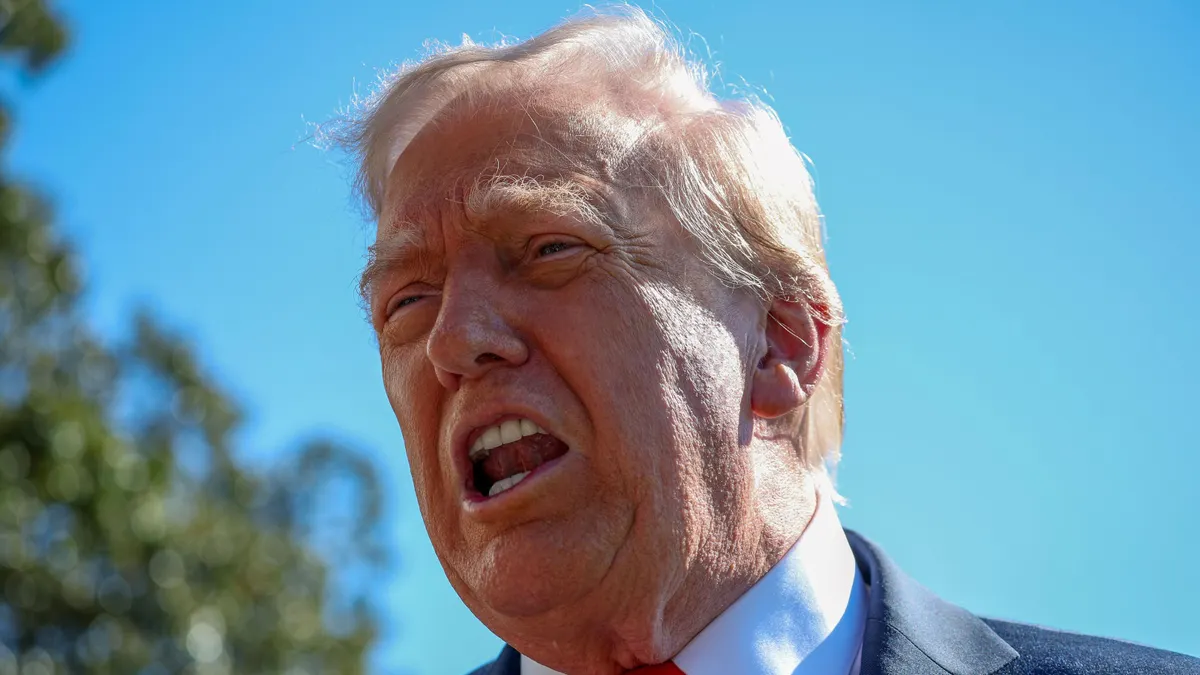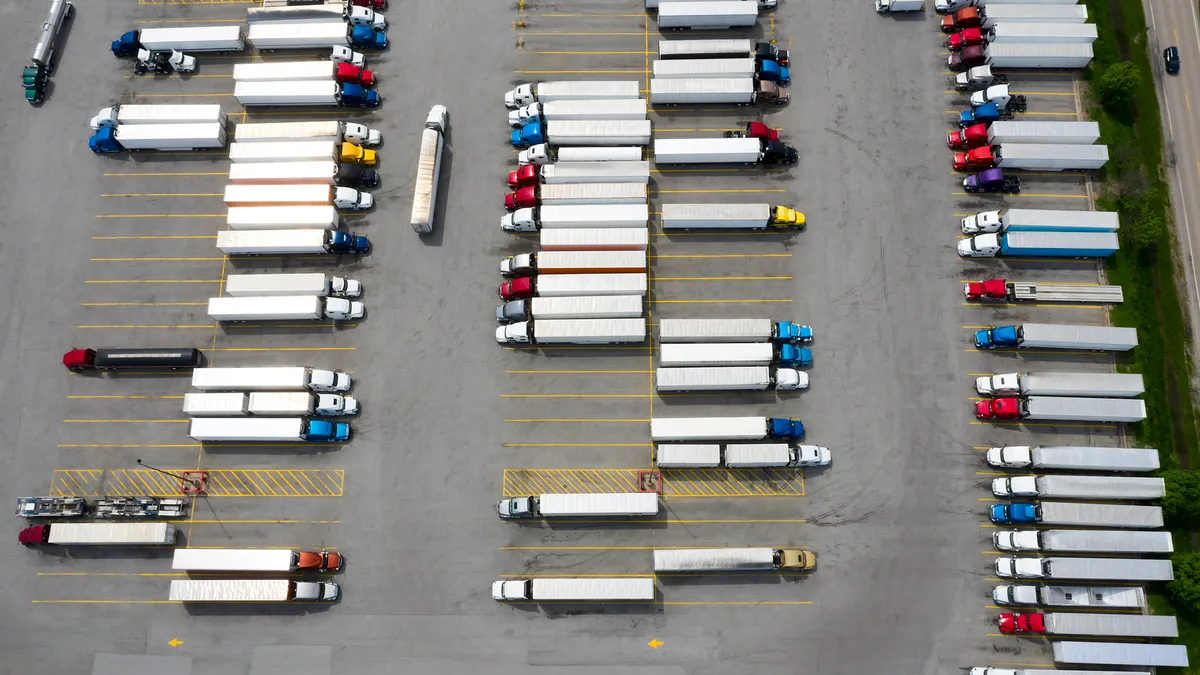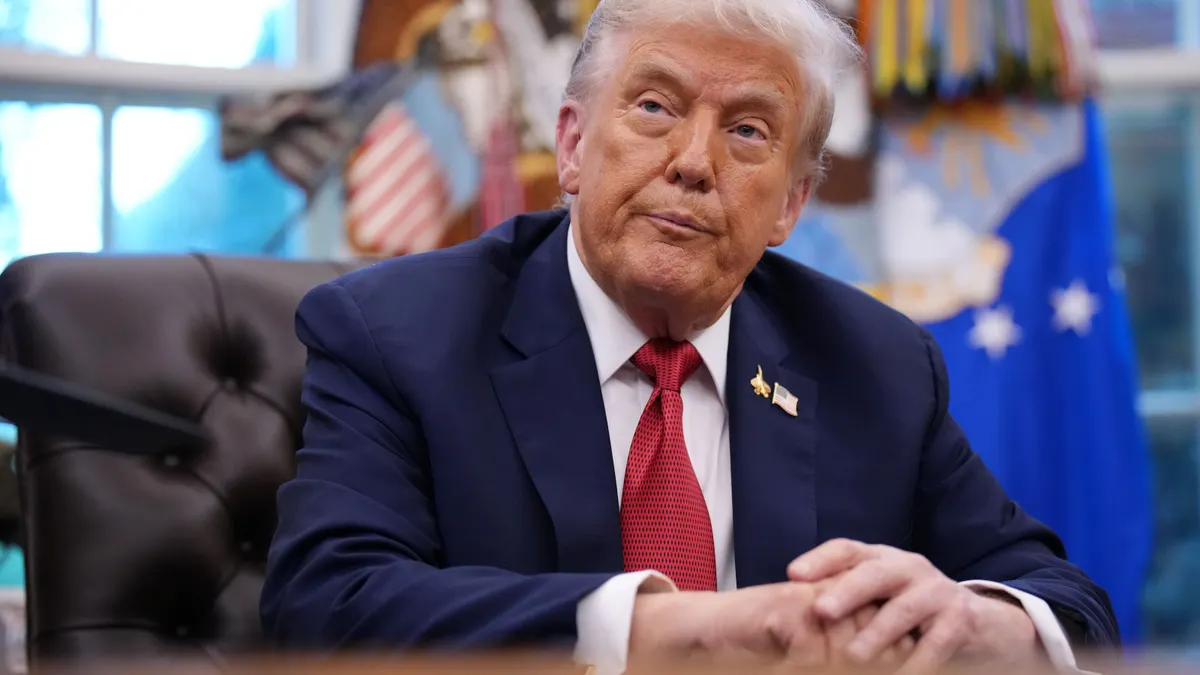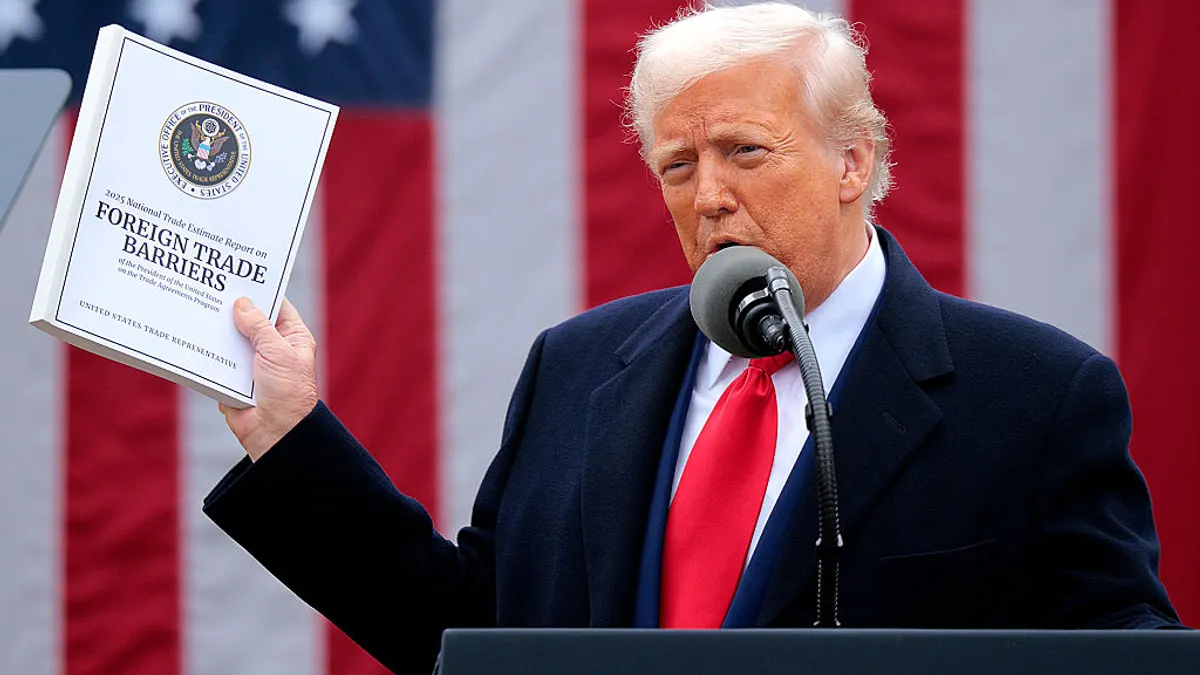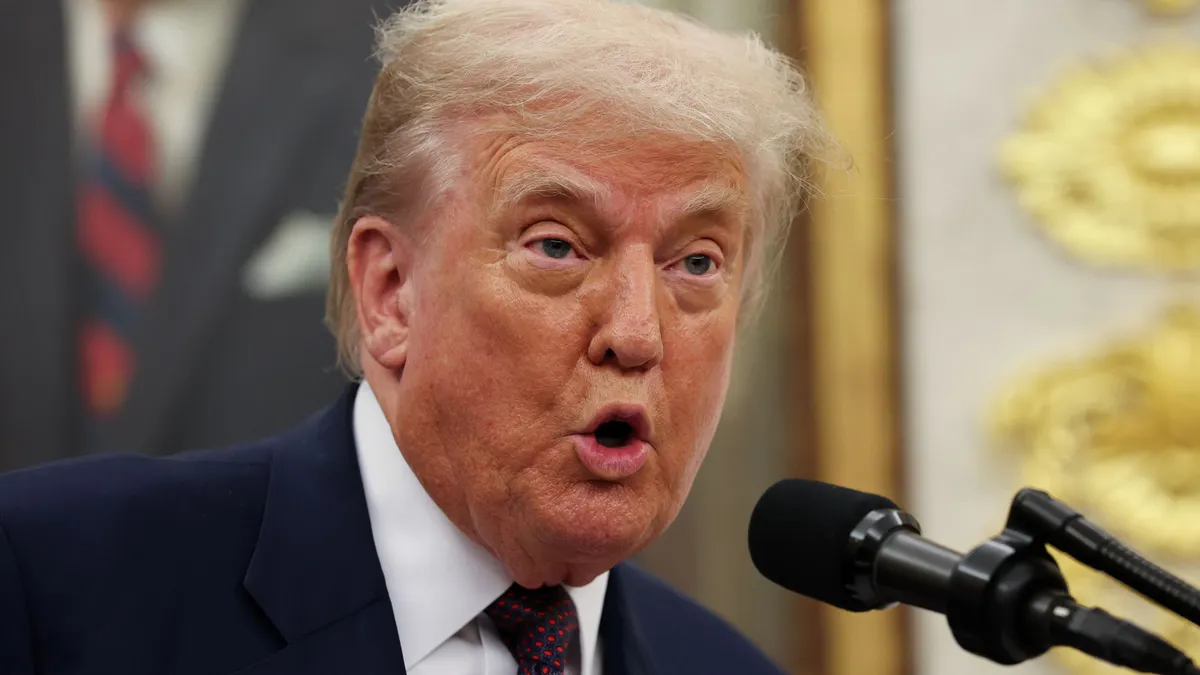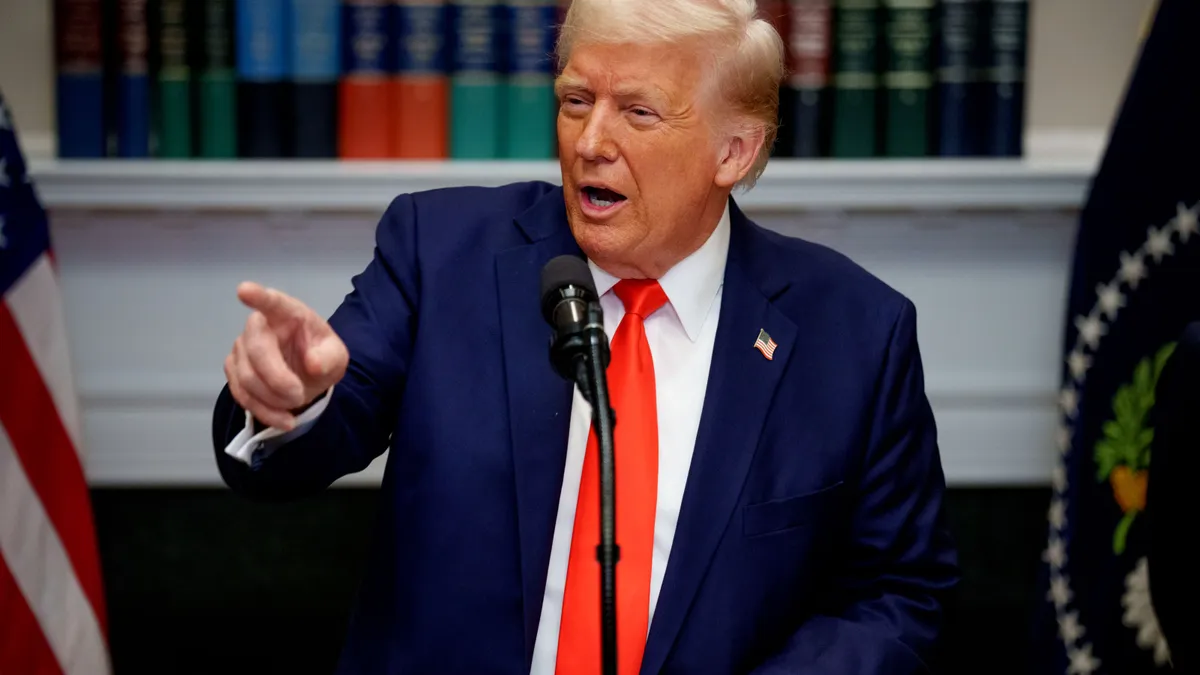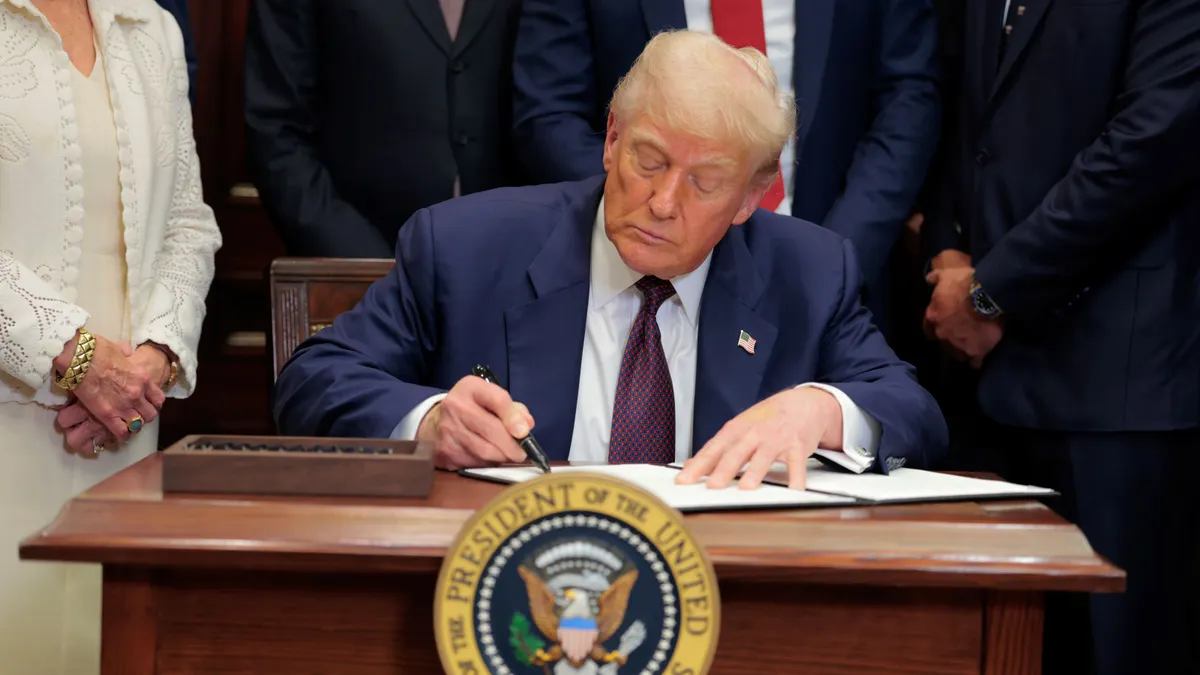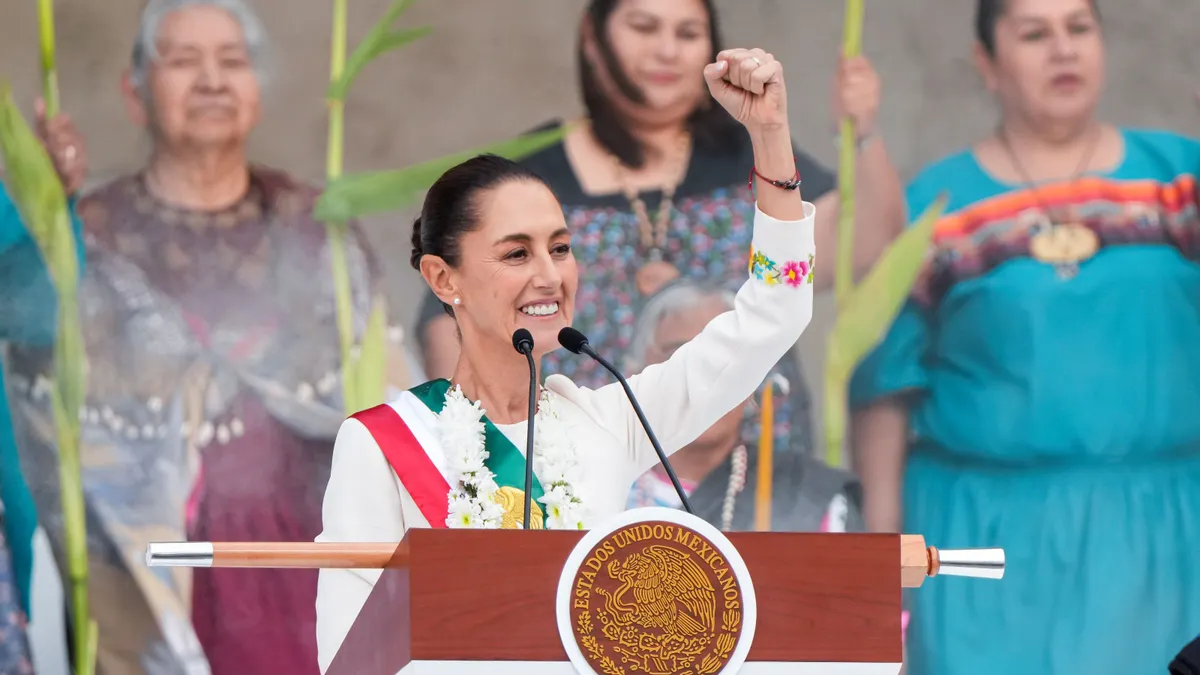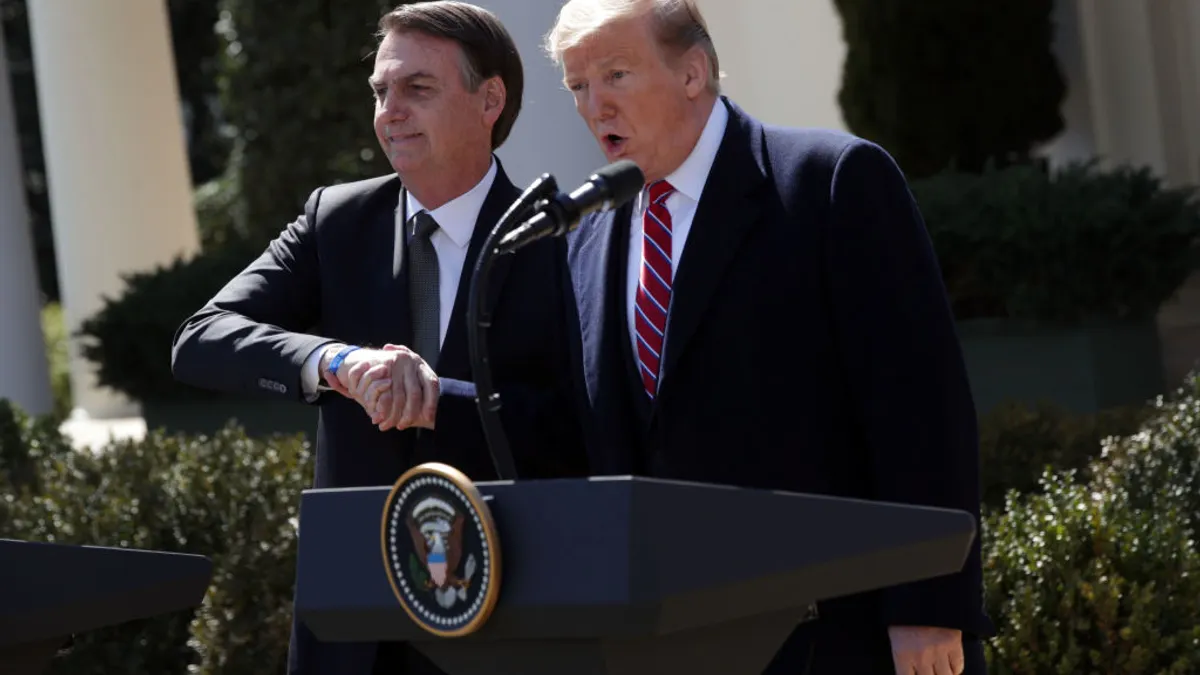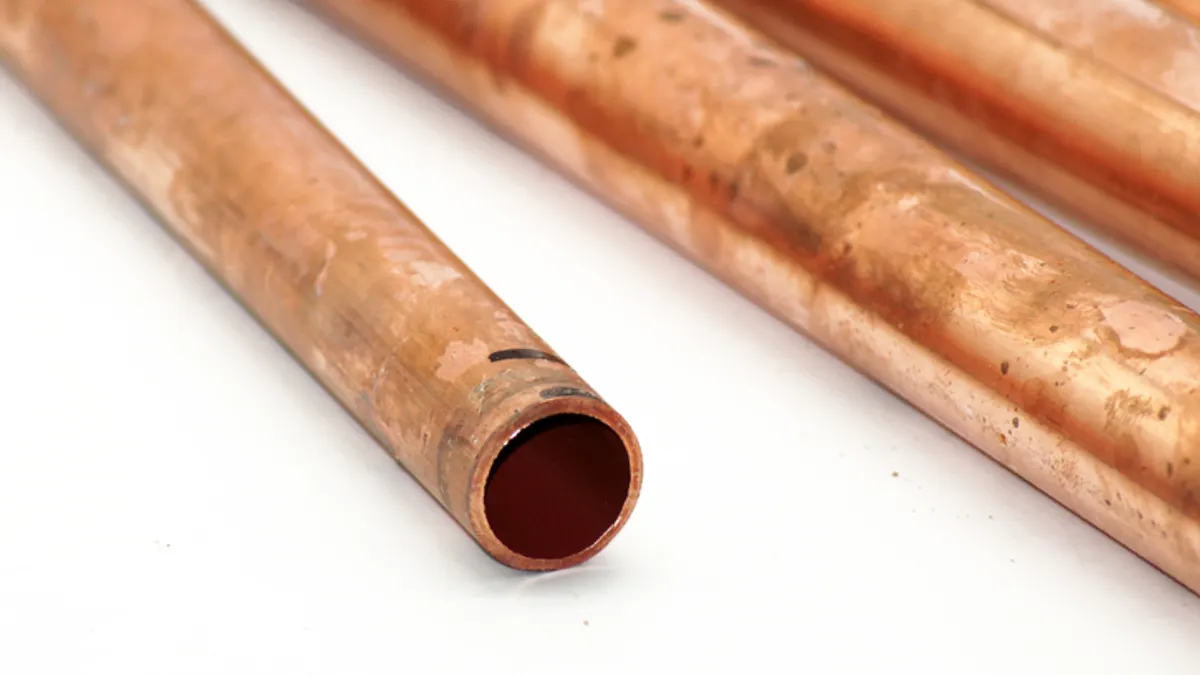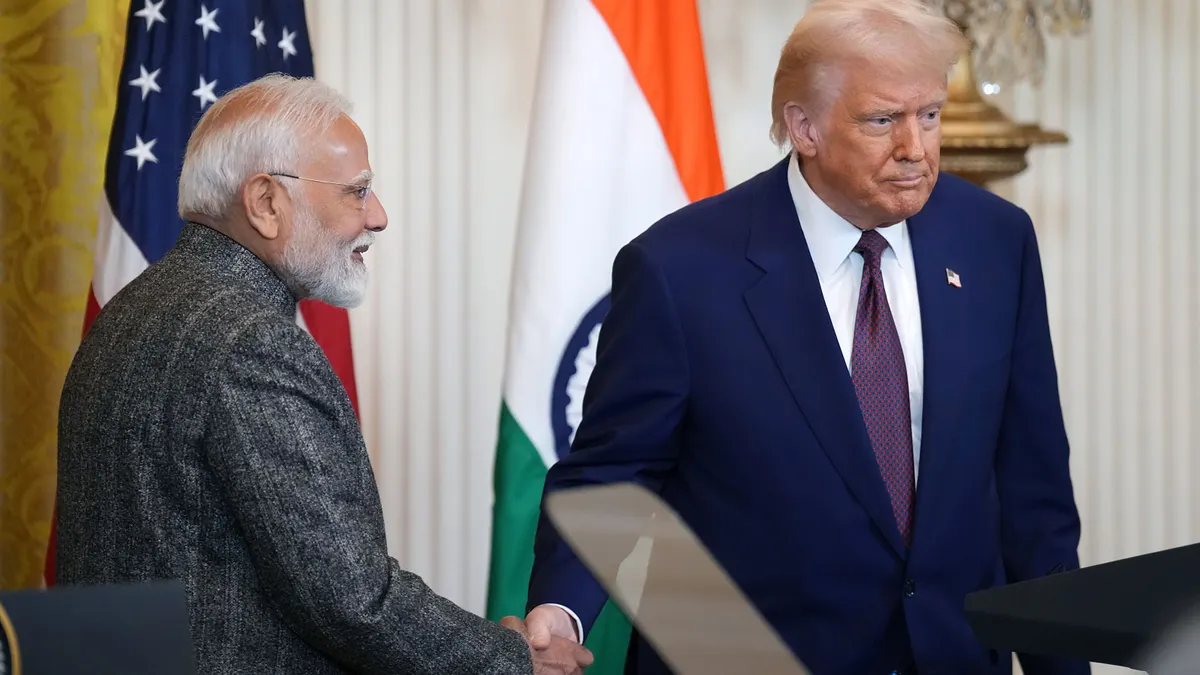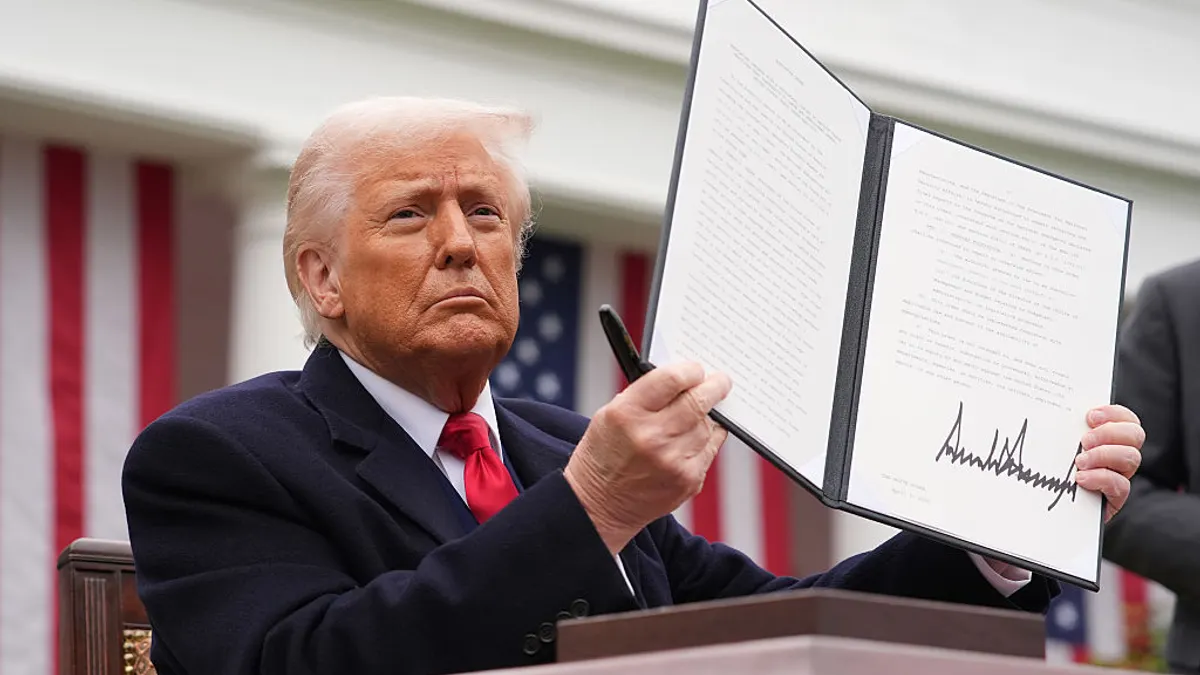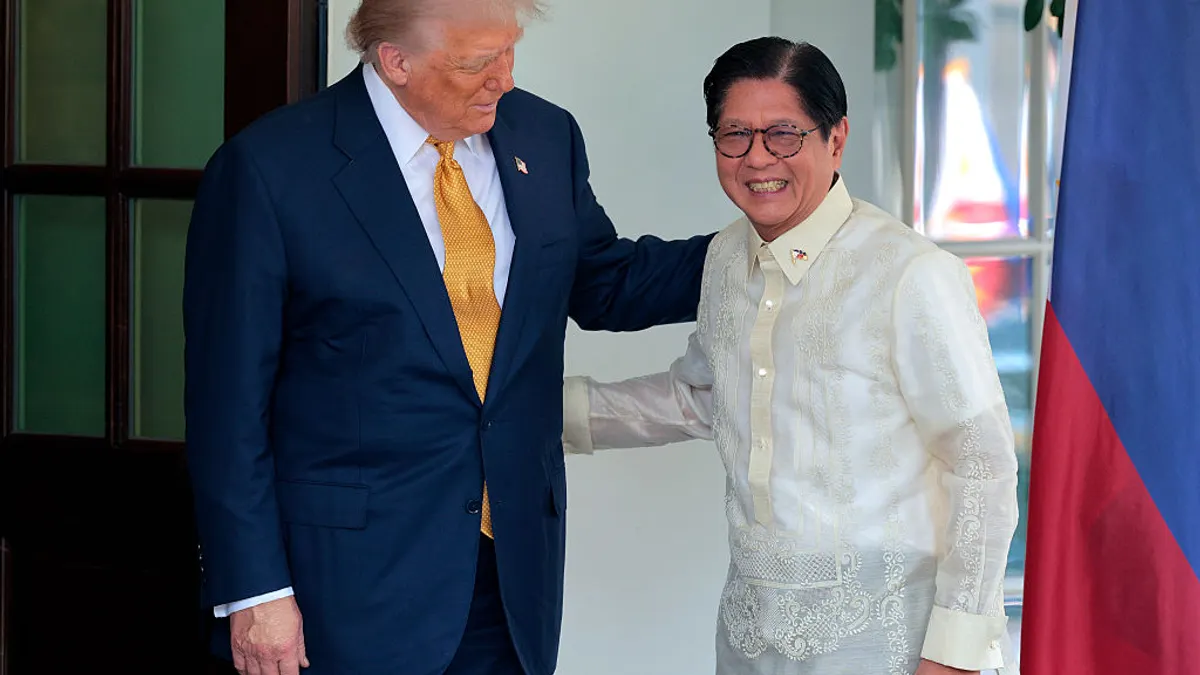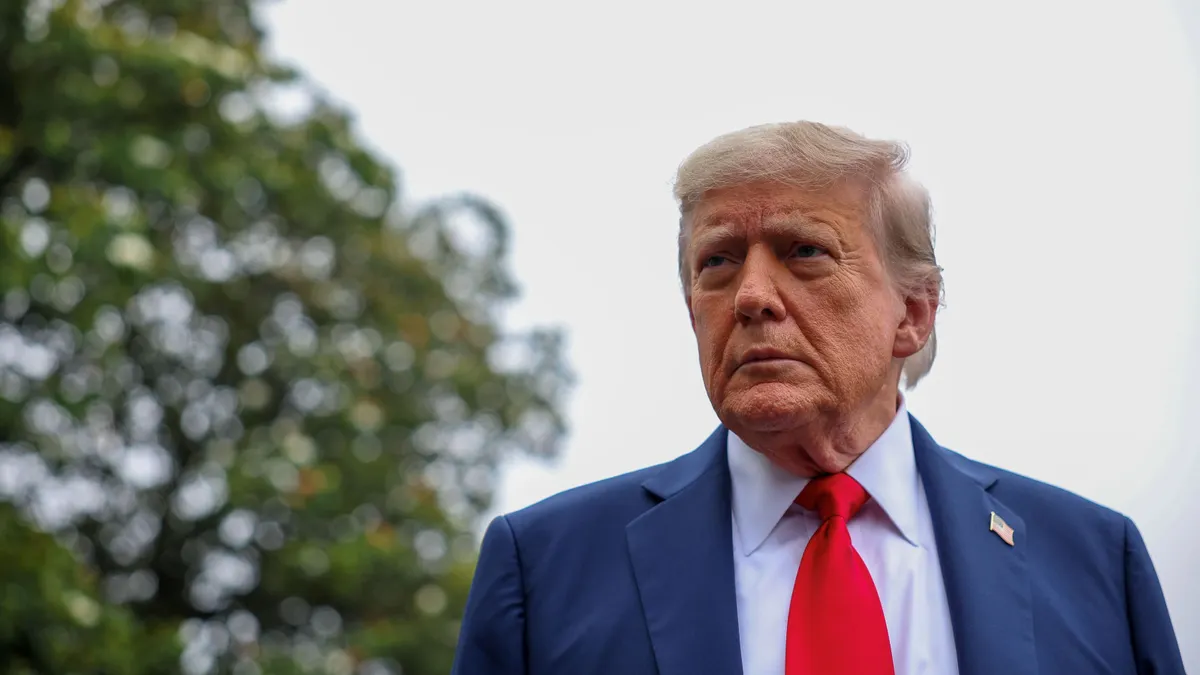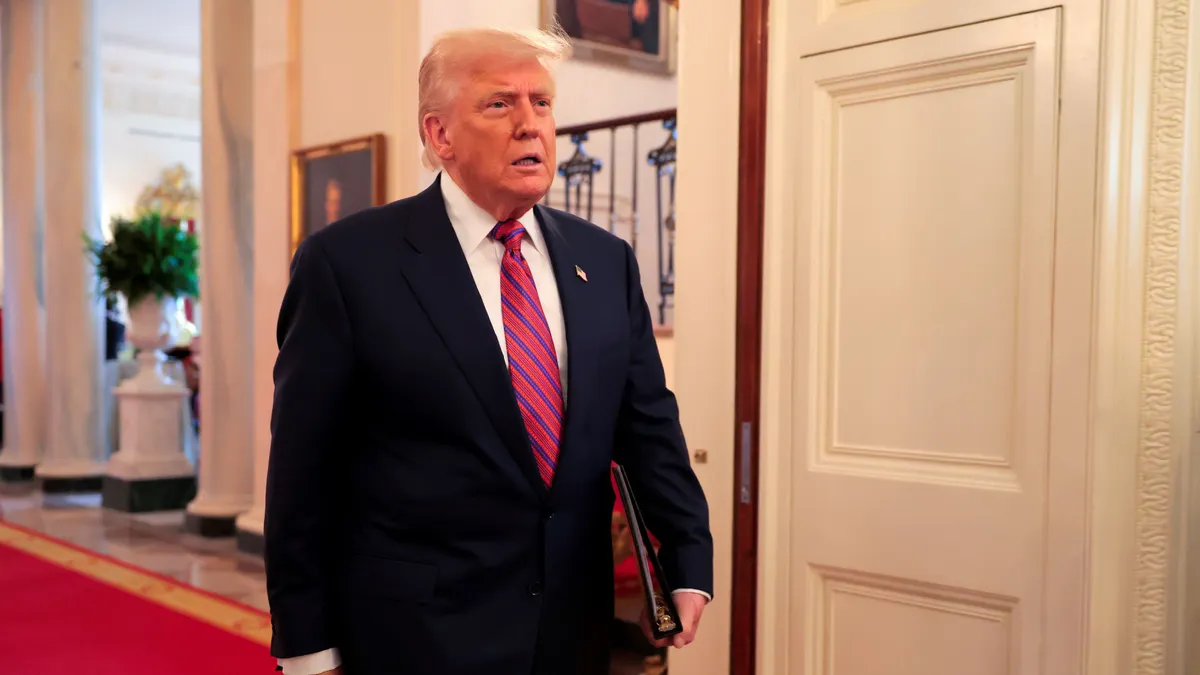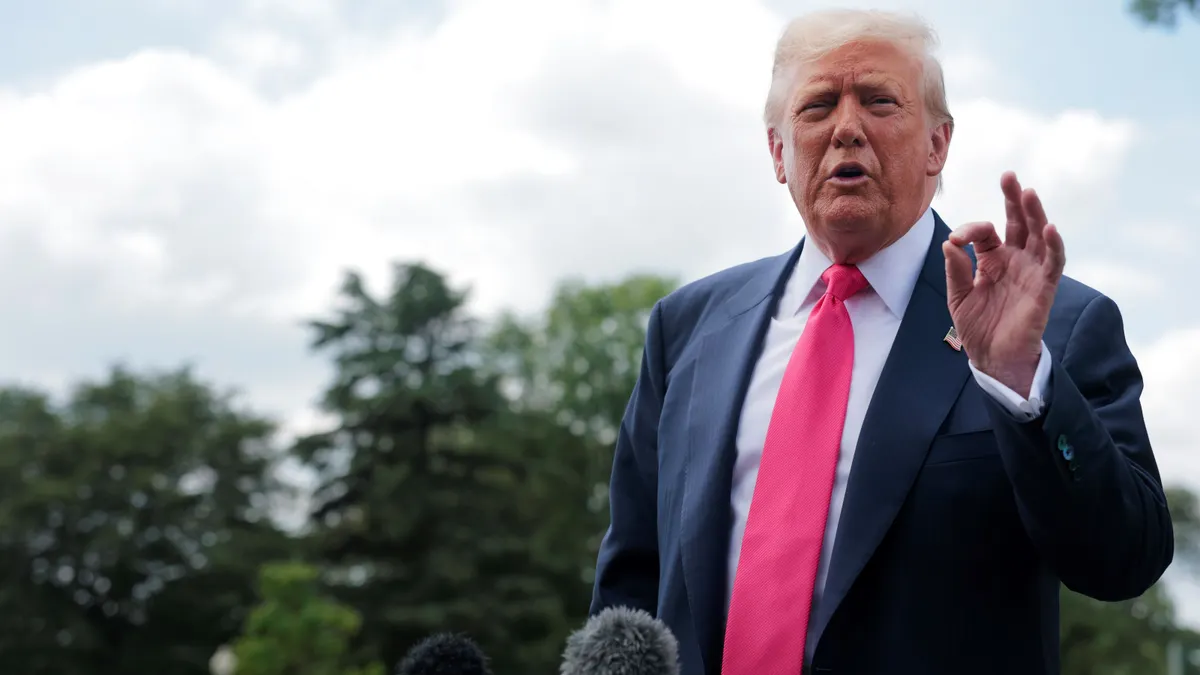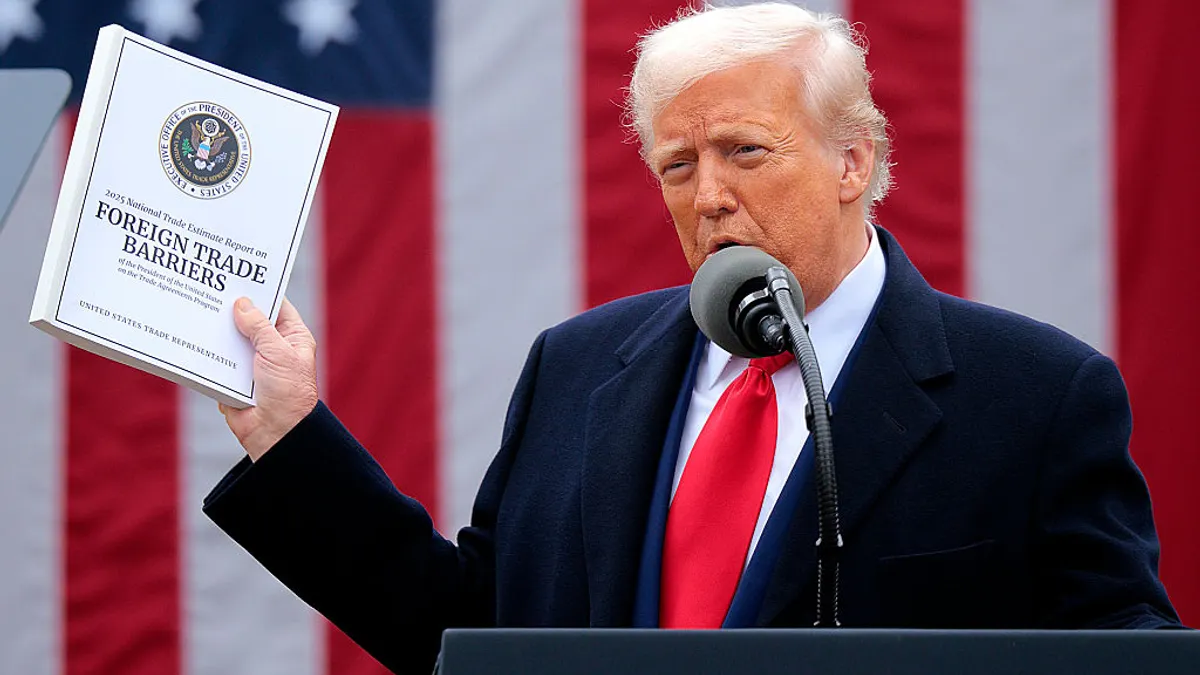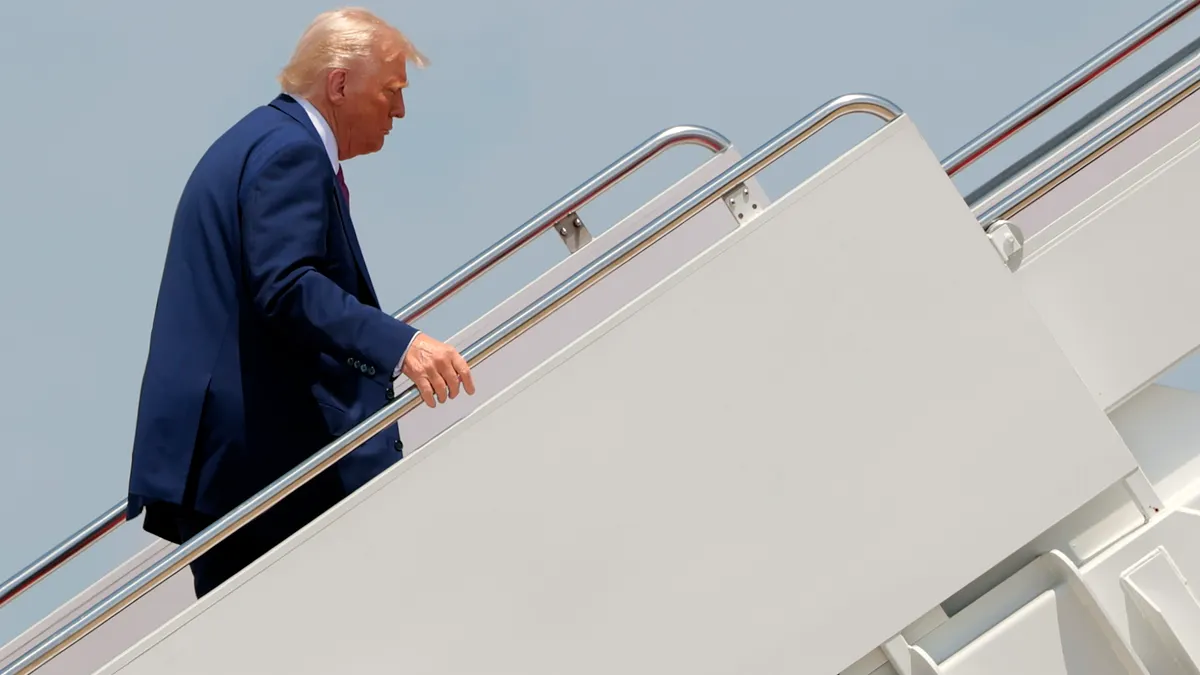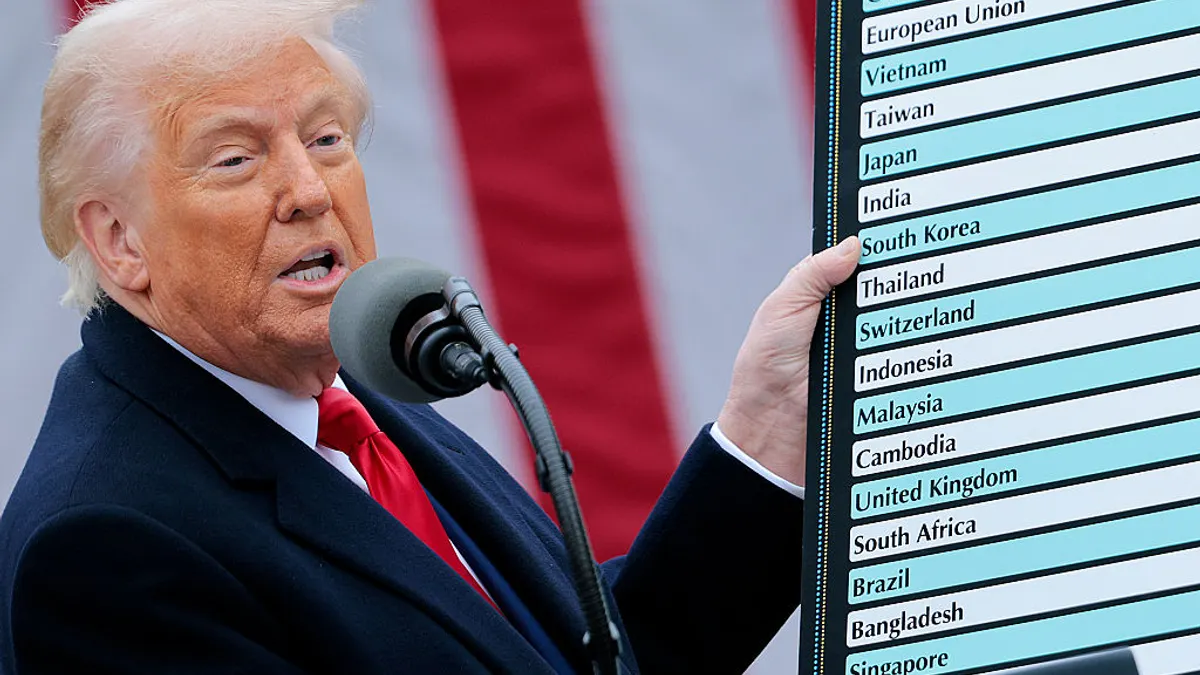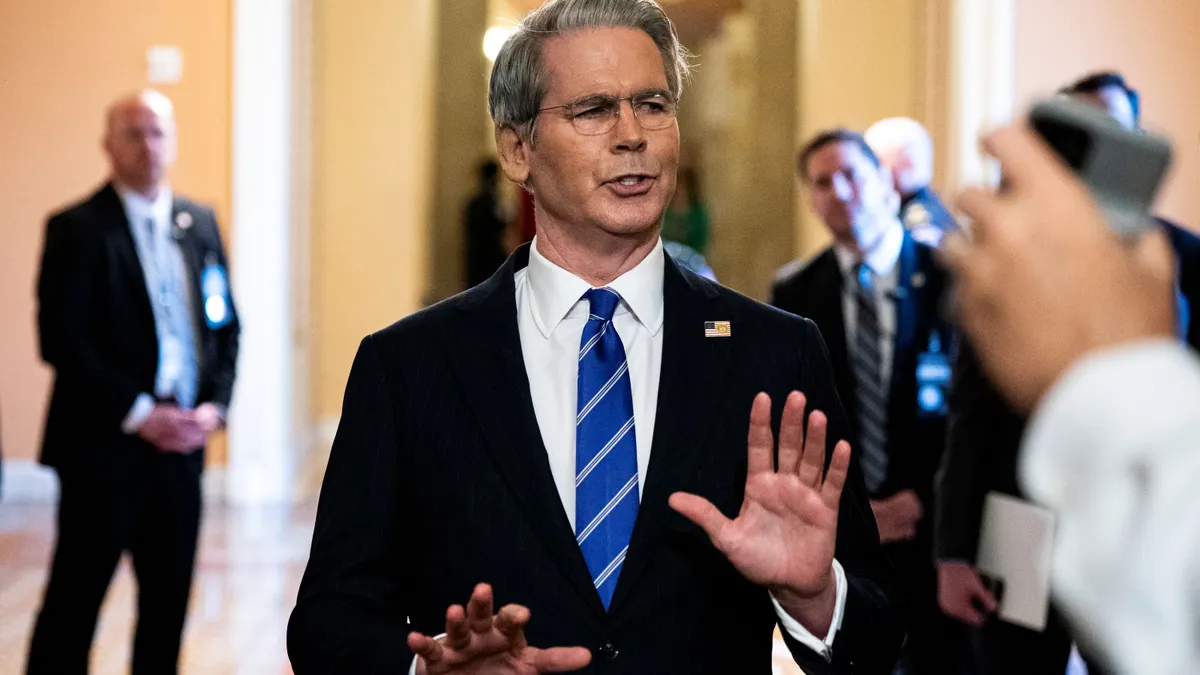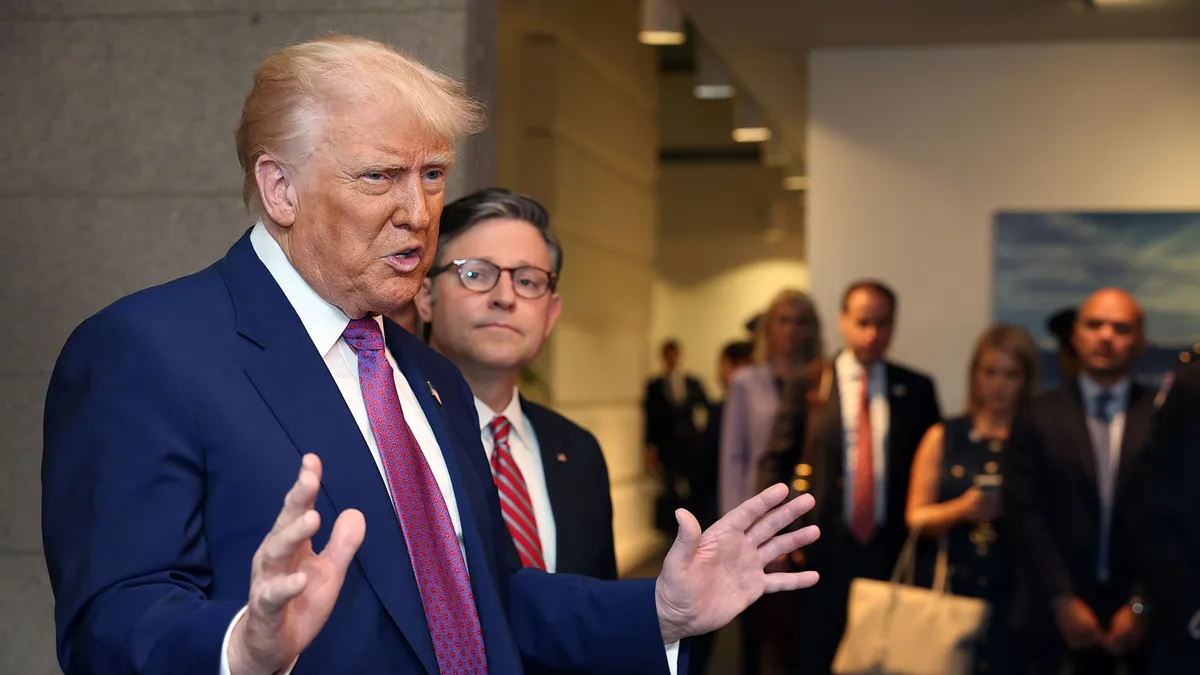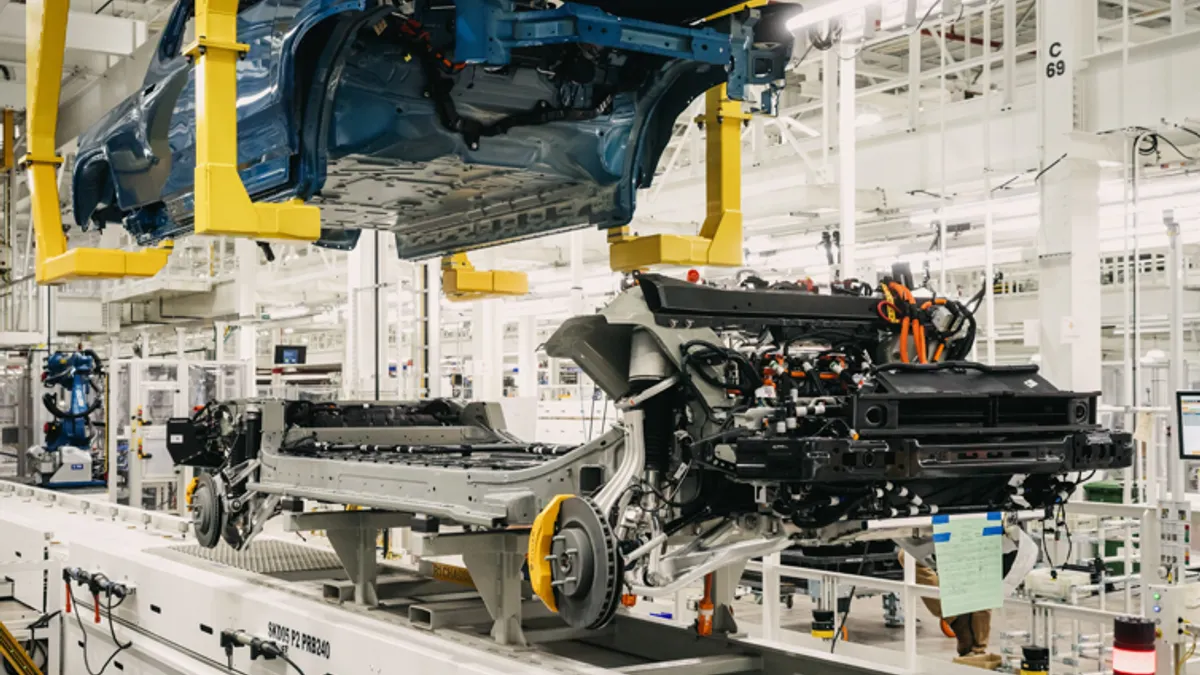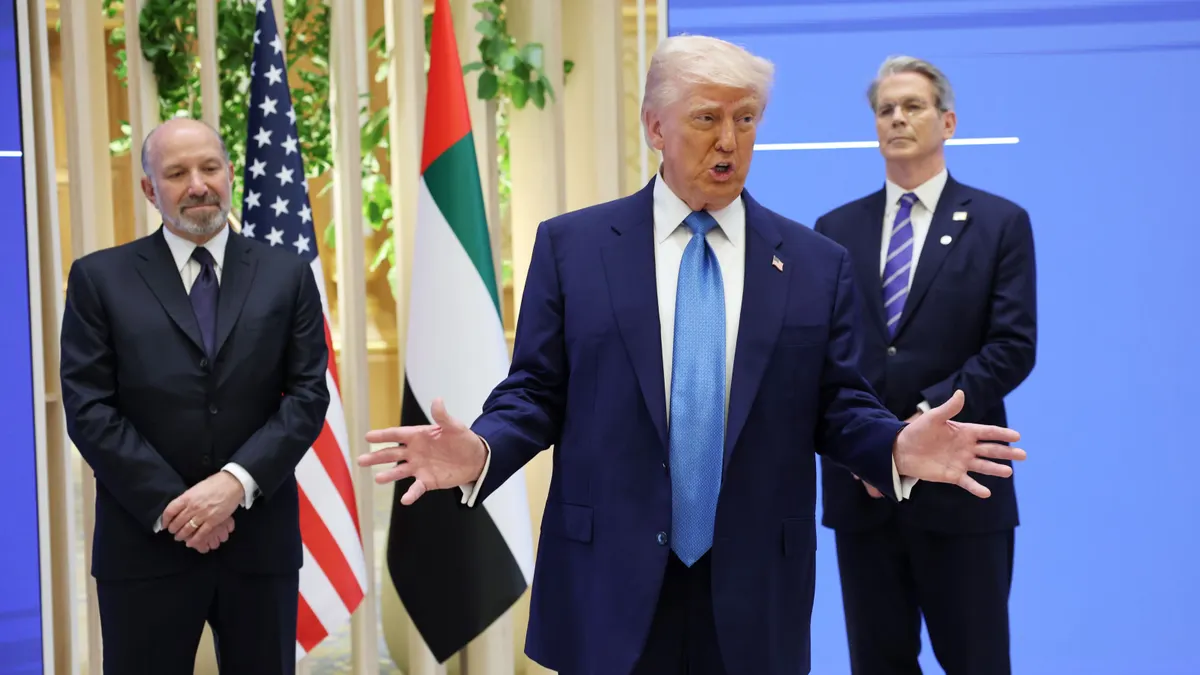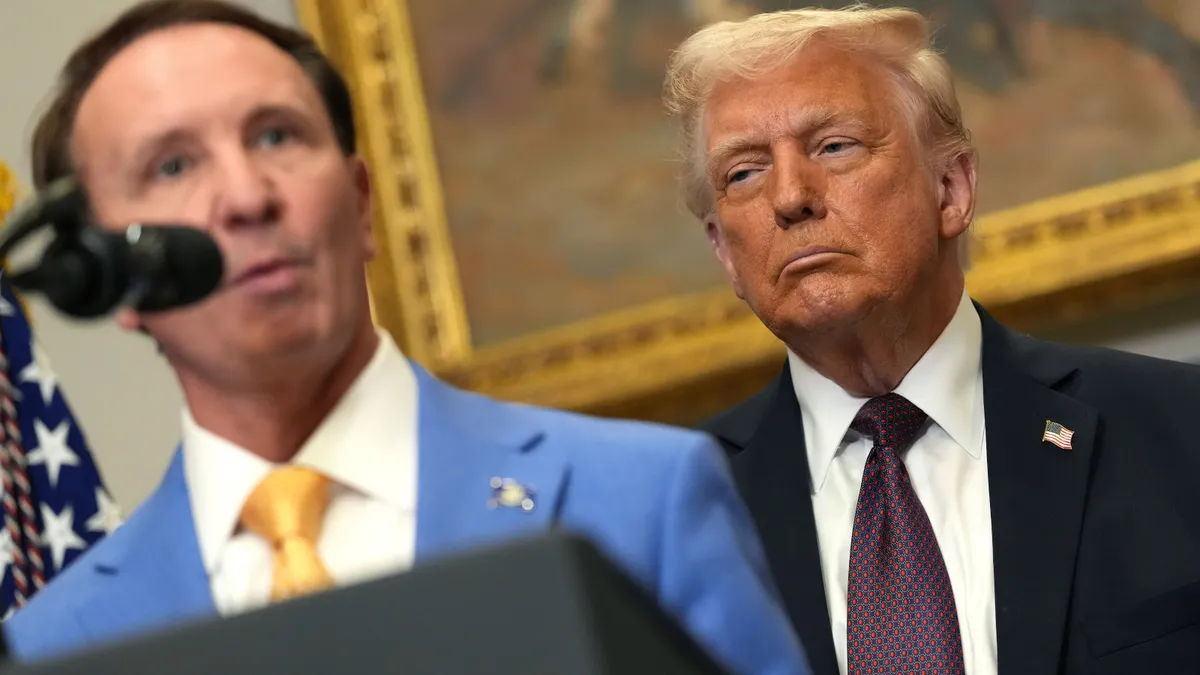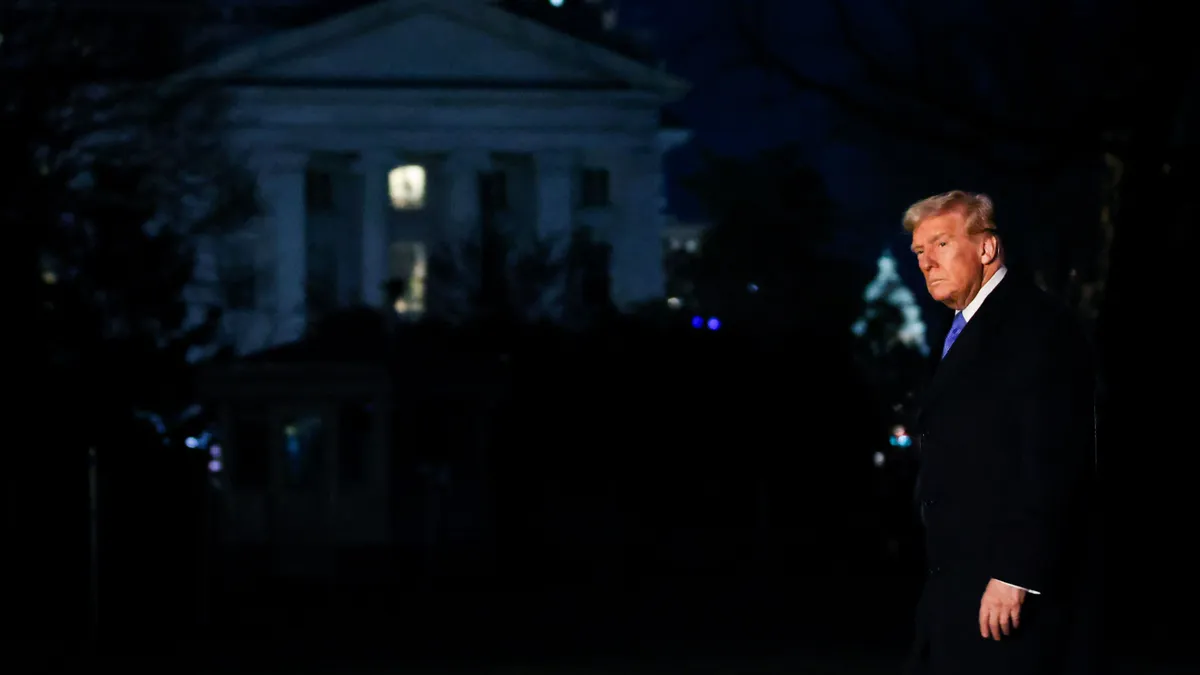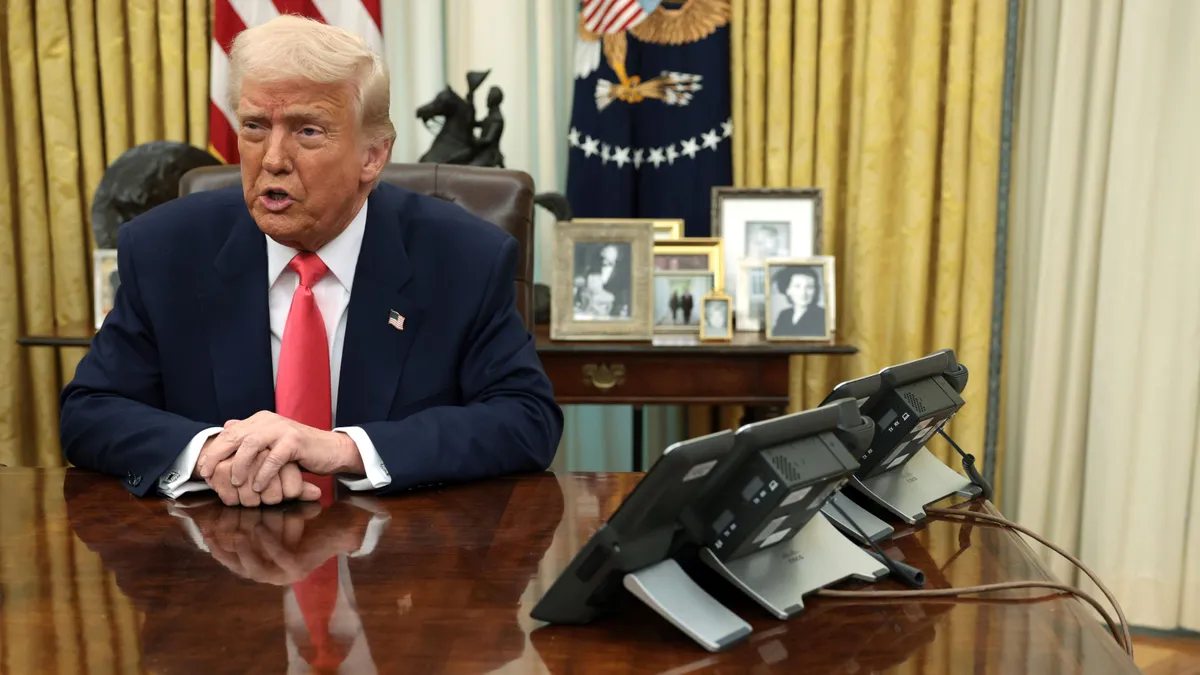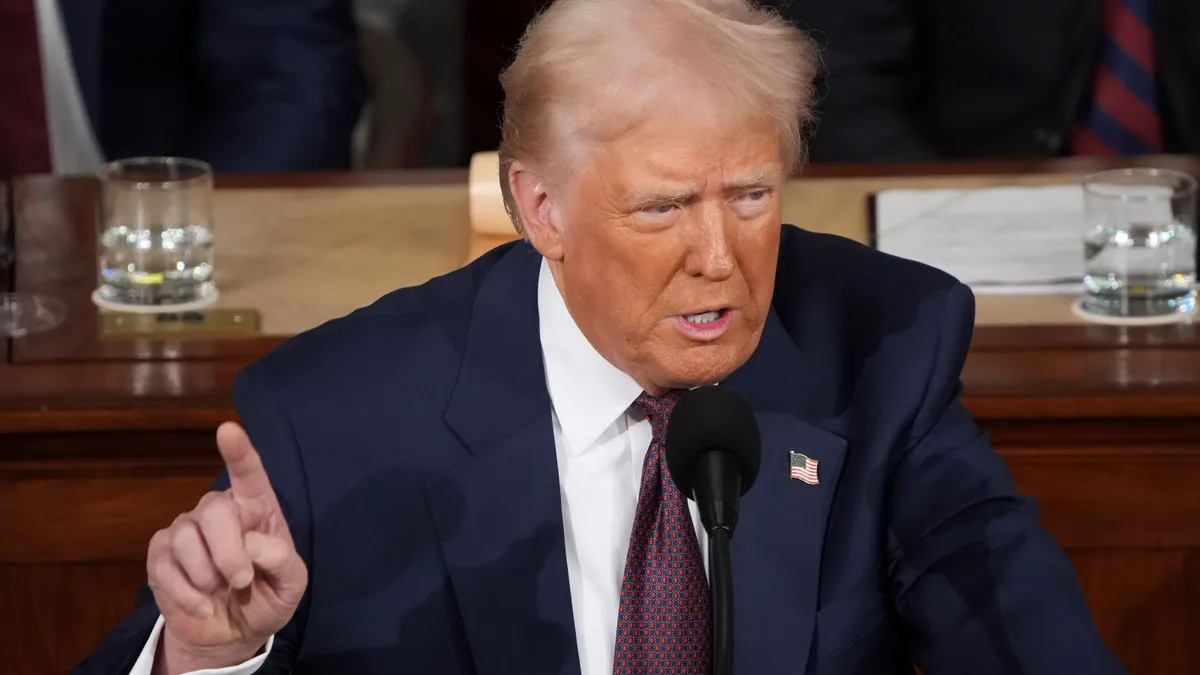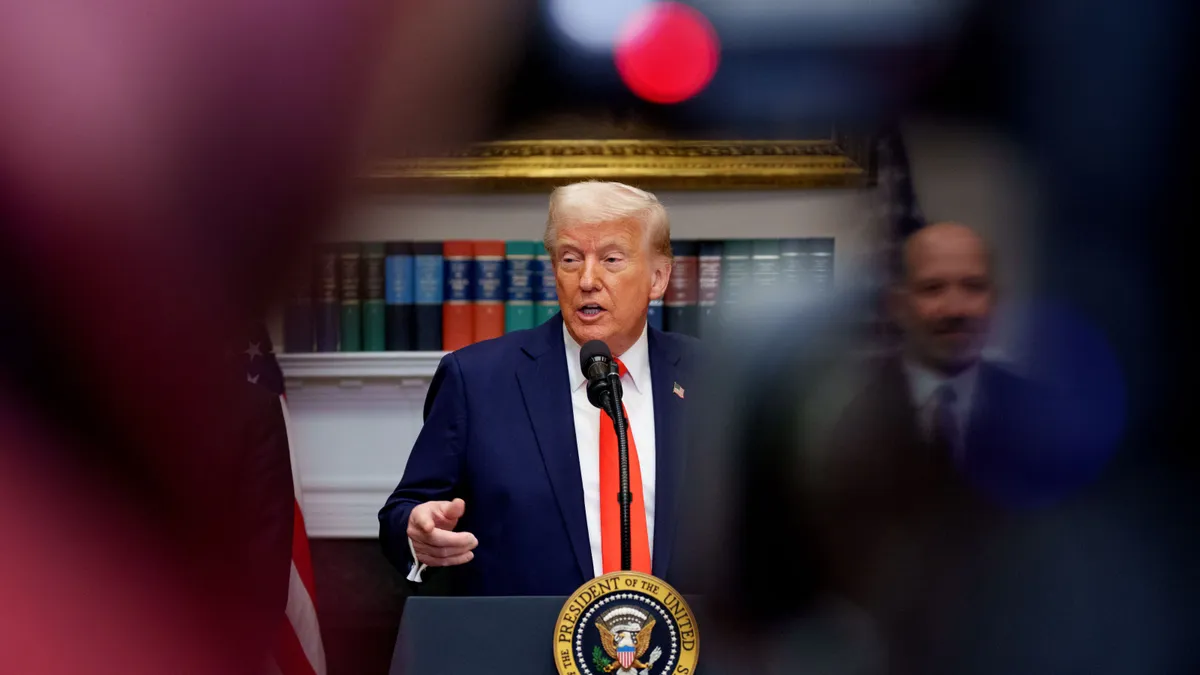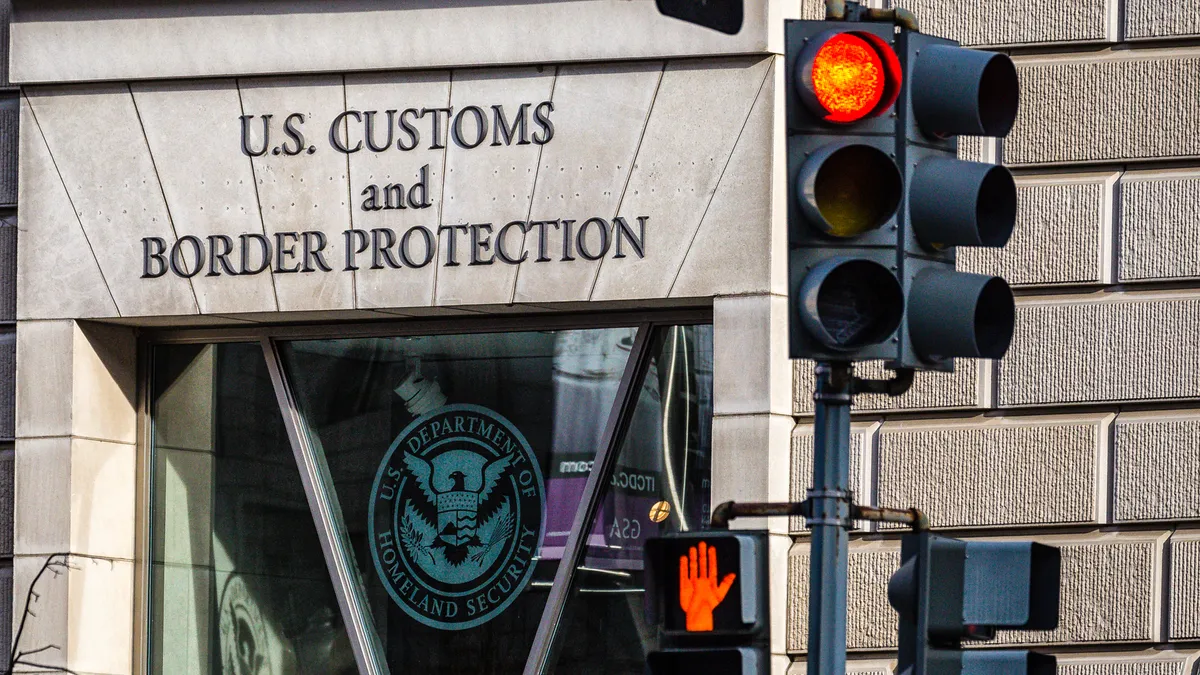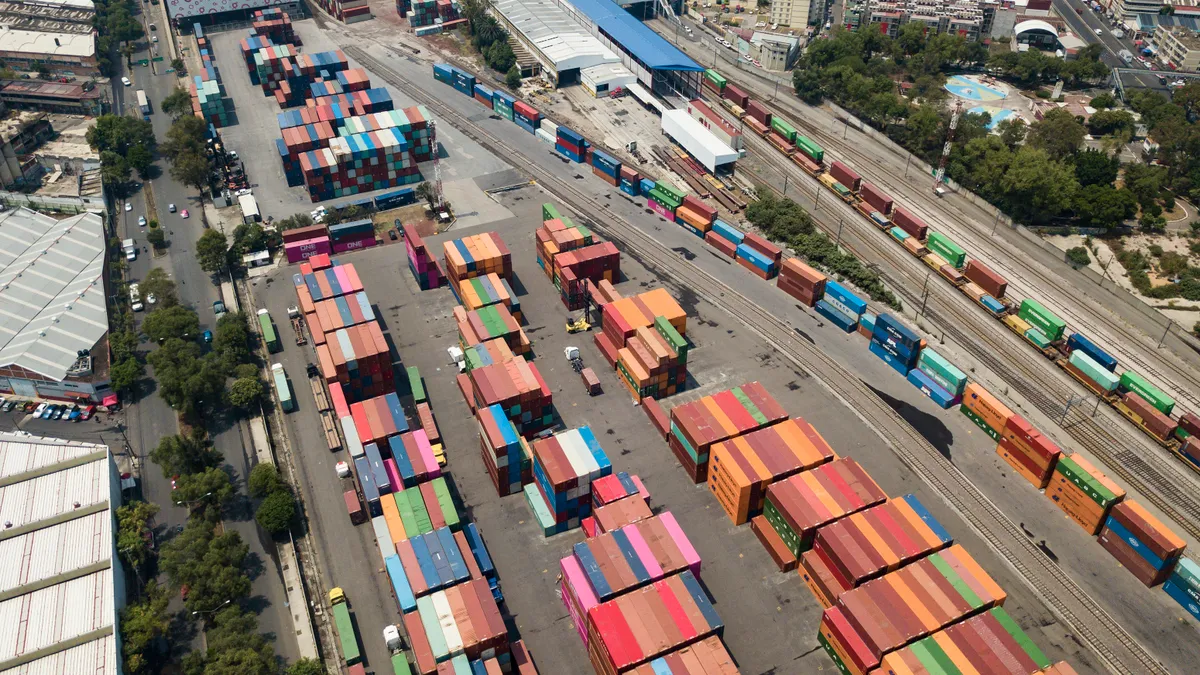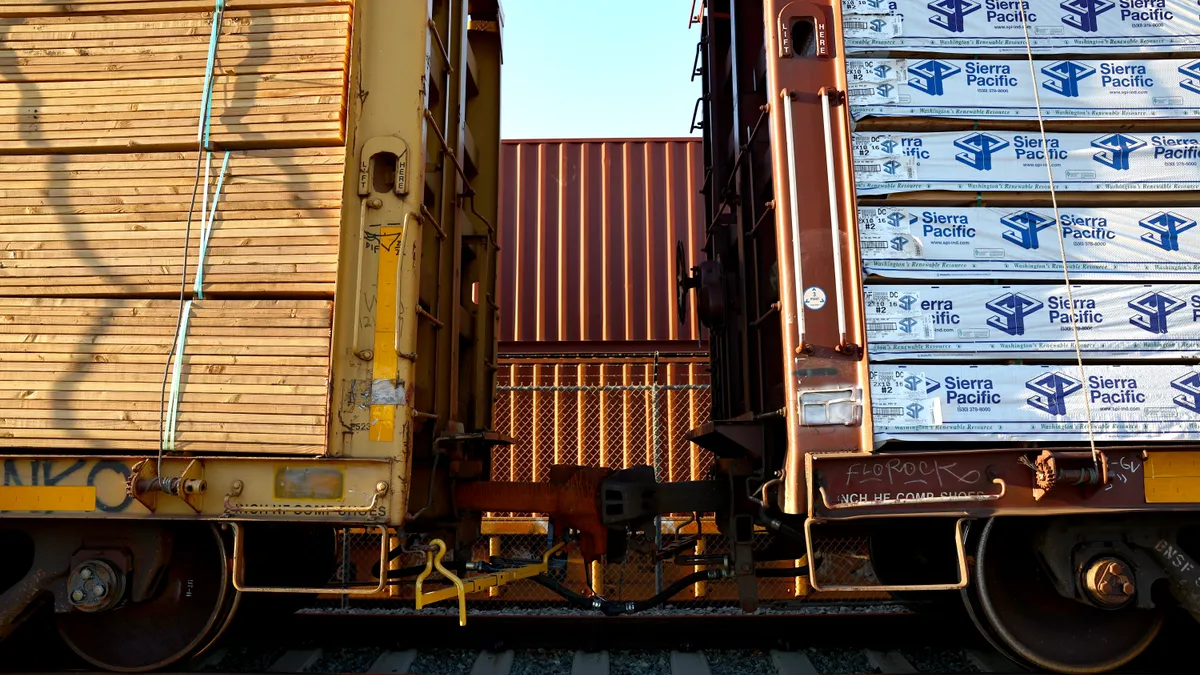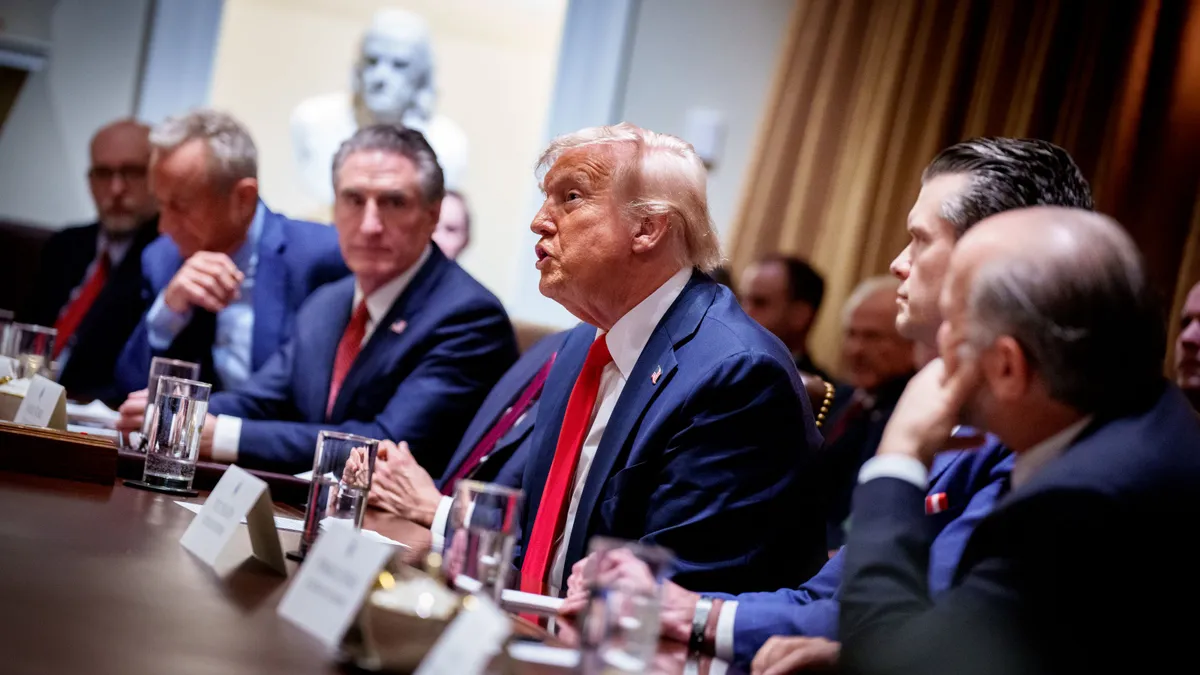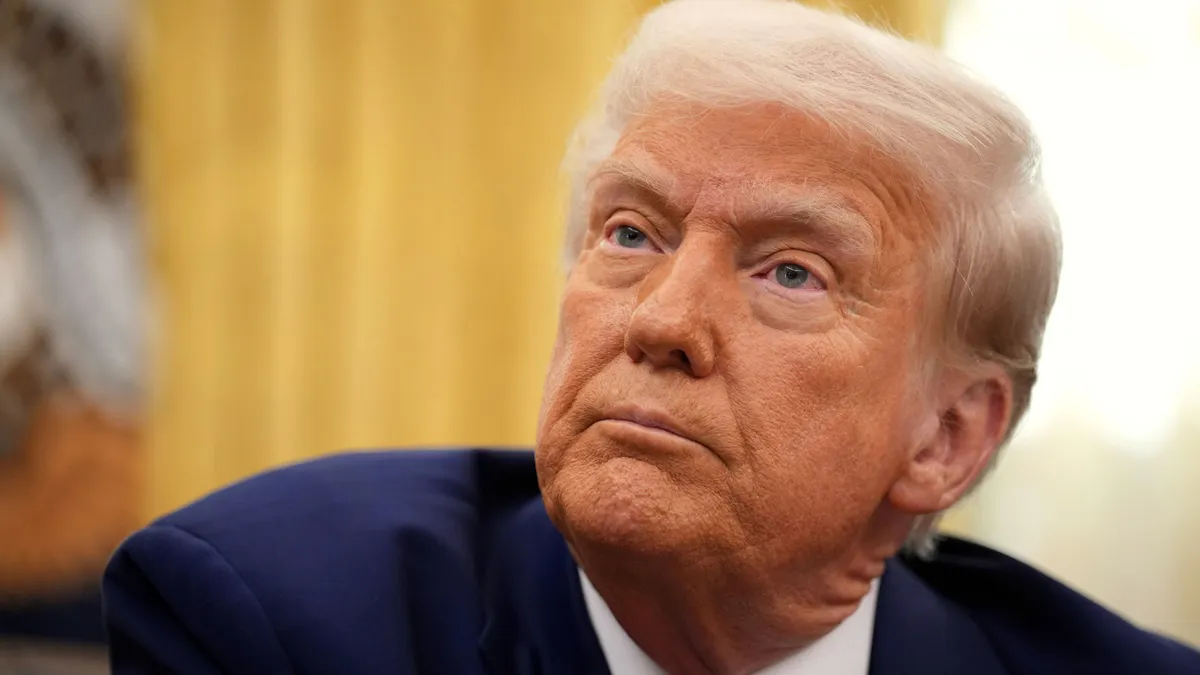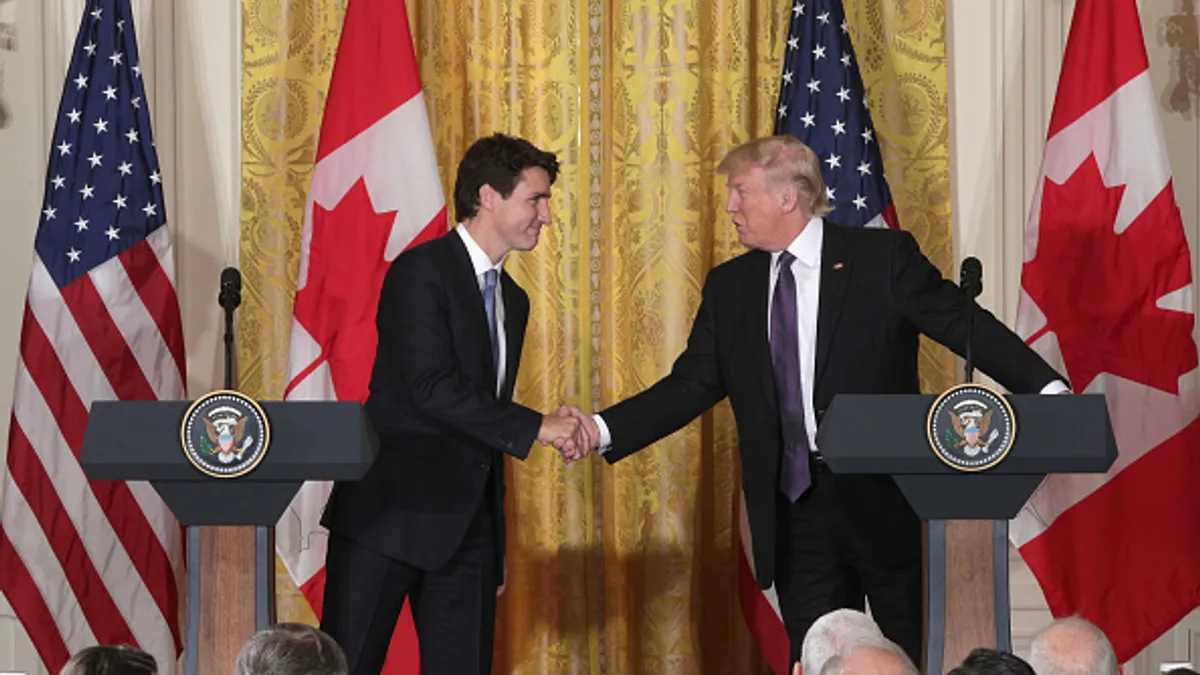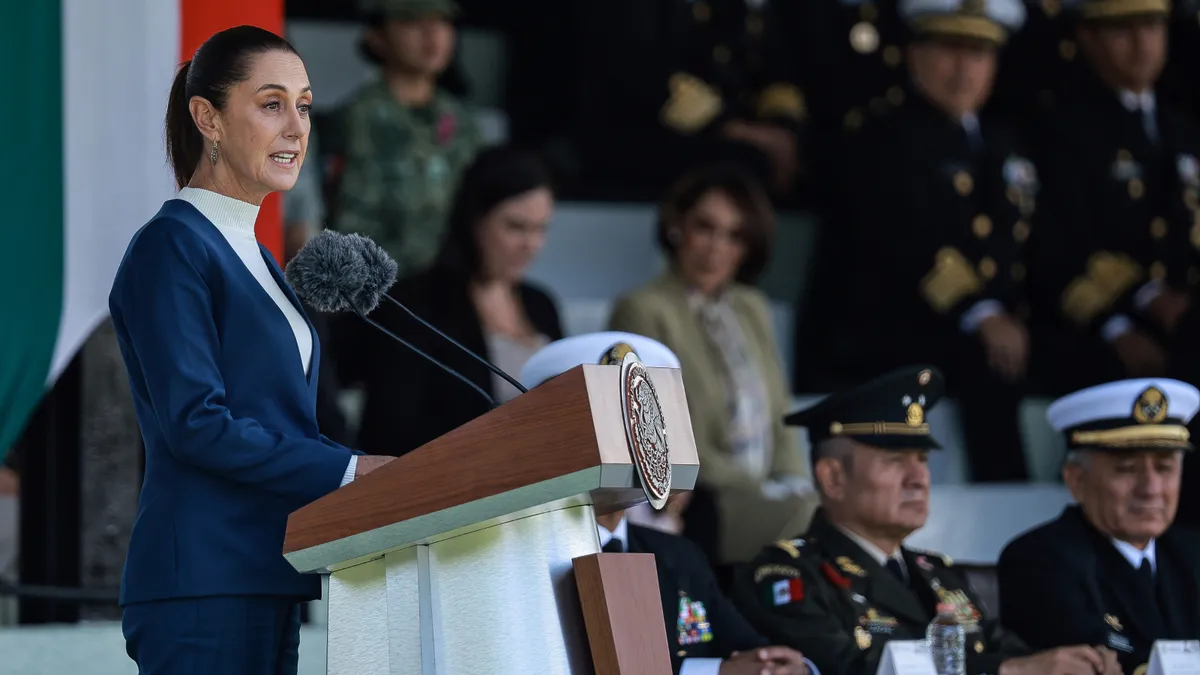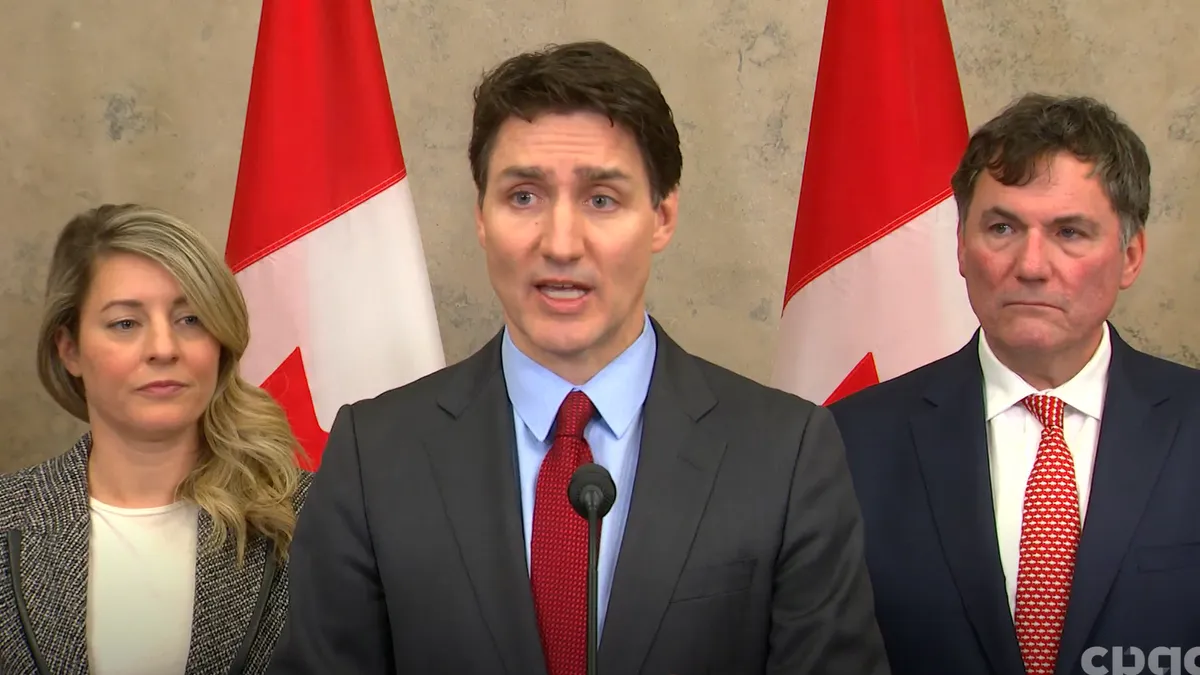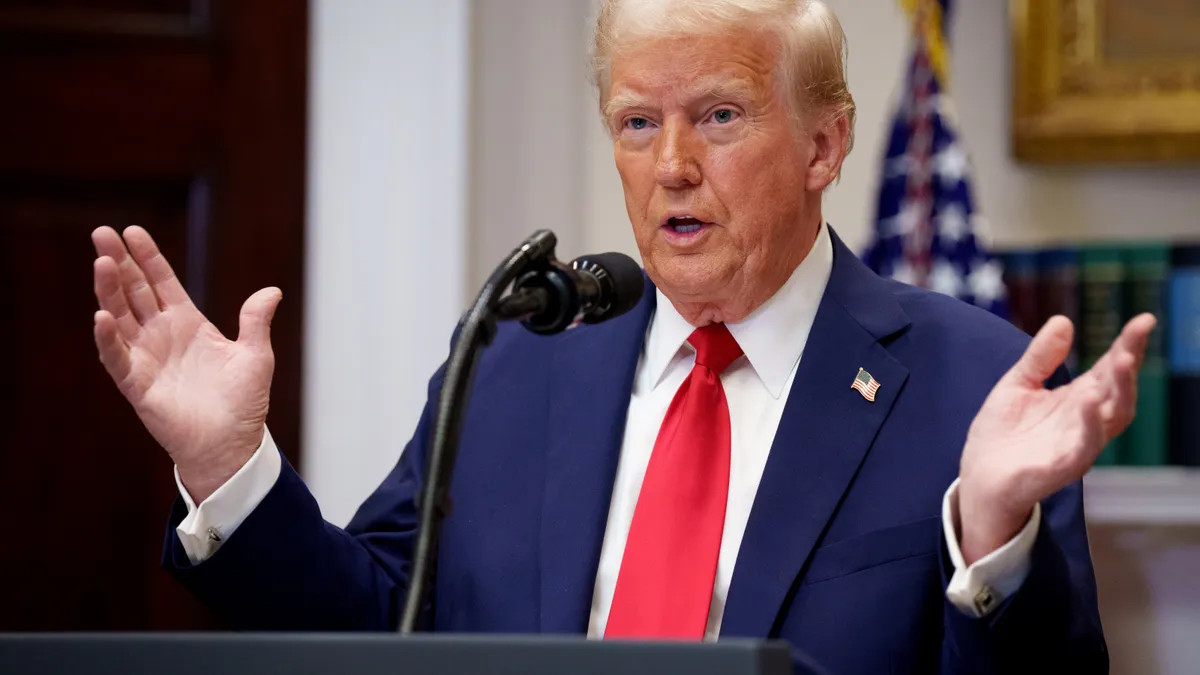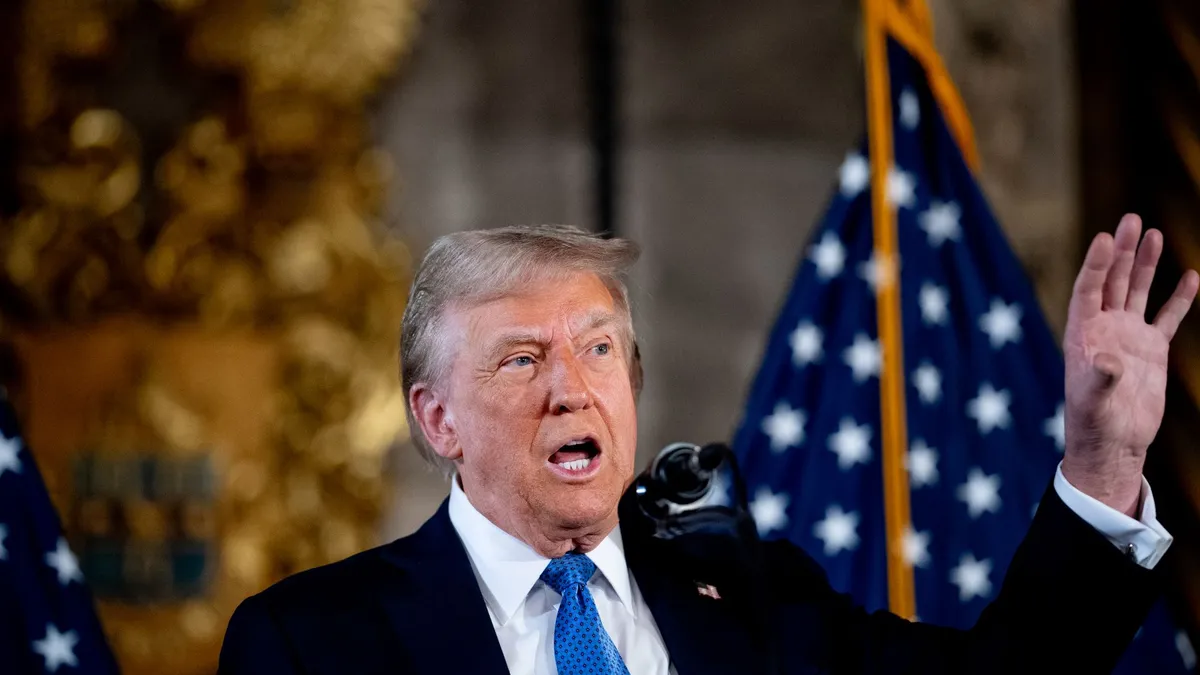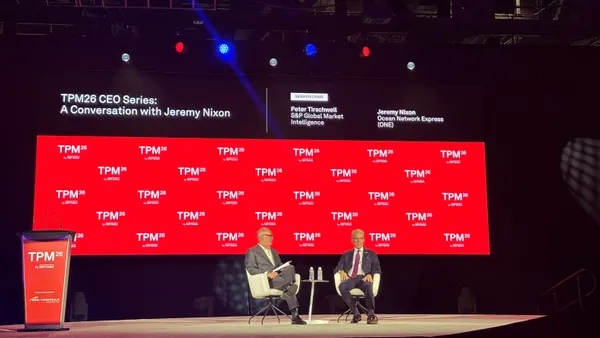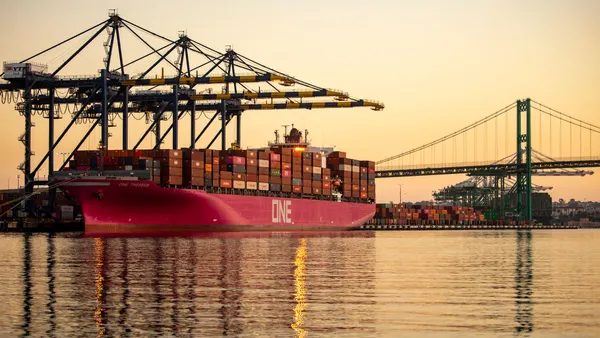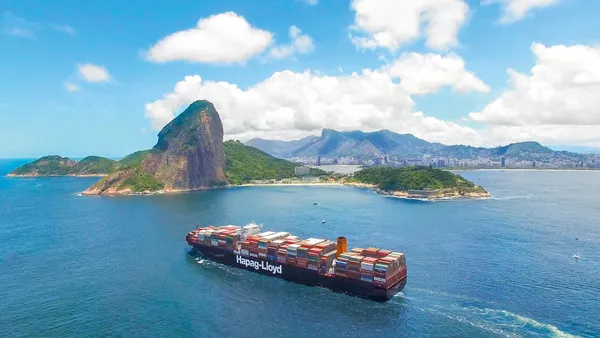The United States will impose 100% tariffs on ship-to-shore cranes and cargo handling equipment with ties to China, effective Nov. 9, per a notice from the Office of the U.S. Trade Representative.
The 100% levies will apply to ship-to-shore cranes manufactured in China or by a company under control by a citizen of the country or with components from the country, according to the notice. The tariffs will also cover intermodal chassis and chassis parts.
The USTR made the announcement in parallel to additional modifications to port fees it installed following a Section 301 investigation into China’s maritime, logistics and shipbuilding practices. Beyond the tariffs, the agency switched to a weight-based fee of $46 per net ton as of Oct. 14 for foreign-vessel operators carrying automobiles. The government also removed a provision to suspend certain liquid natural gas export licenses.
“Increasing Section 301 duties on STS cranes will reduce exposure to and dependence on Chinese sources, strengthen U.S. supply chain resilience and economic security, and provide additional leverage with China to eliminate the investigated acts, policies, and practices,” the notice says.
The new duties will not apply to ship-to-shore cranes contracted prior to April 17, 2025, that enter the U.S. before April 18, 2027, per the notice.
Beyond the newly announced levies, the USTR is also considering additional modifications, including applying up to 150% tariffs on imported rubber tire gantry cranes, rail mounted gantry cranes, automatic stacking cranes, terminal tractors, straddle carriers, top loaders and corresponding parts.
The USTR opened a comment period for stakeholders to address the newly proposed changes. The comment period will close Nov. 10, per the notice.
The latest adjustments from the USTR add fuel to intensifying trade tensions between the U.S. and China. Last week, President Donald Trump said he would place 100% duties on imports from China starting Nov. 1. The threat was made in response to China’s newly announced export controls on rare earth minerals.
Although White House officials have said there is still room to negotiate, the latest back-and-forth imperils a monthslong truce between the two countries.









